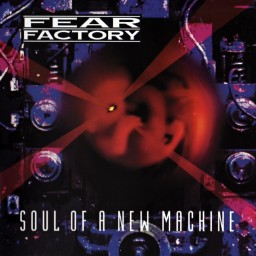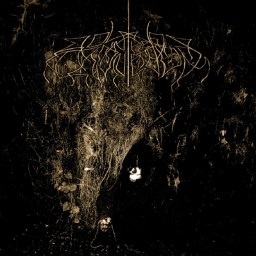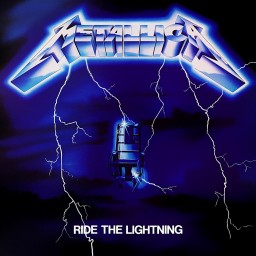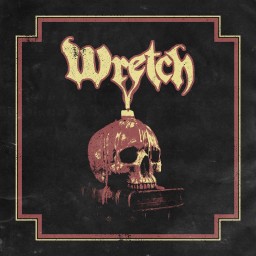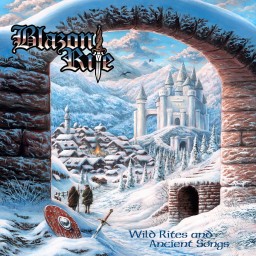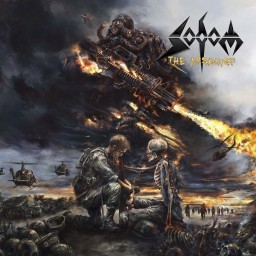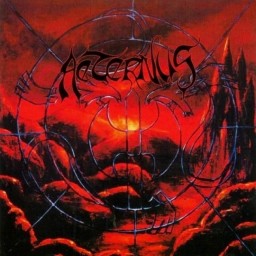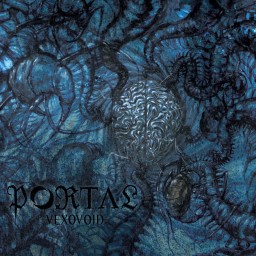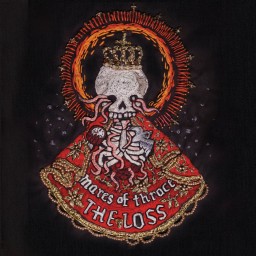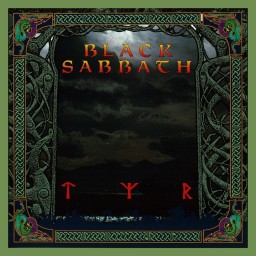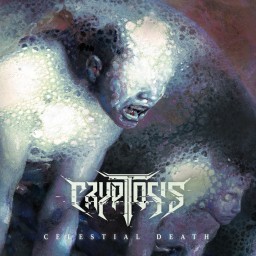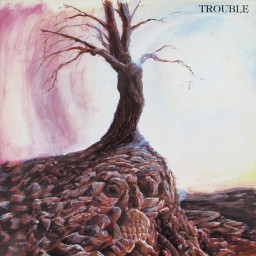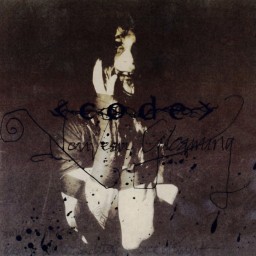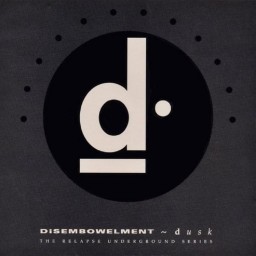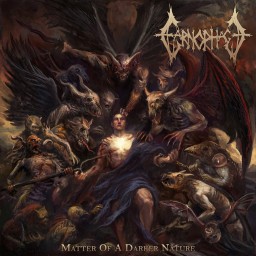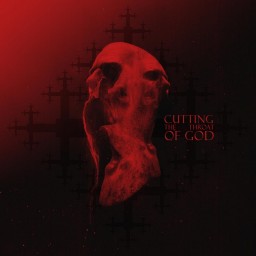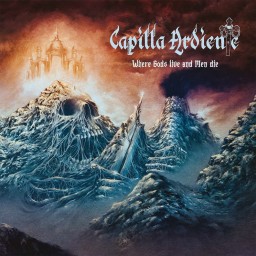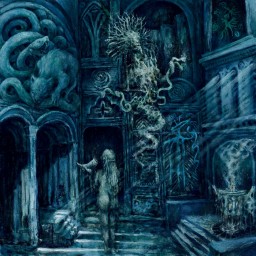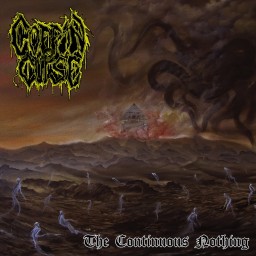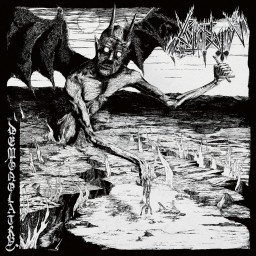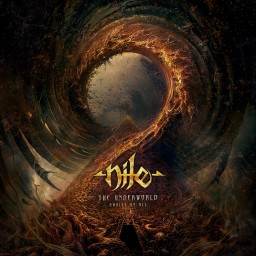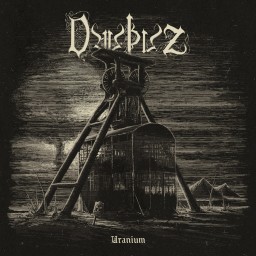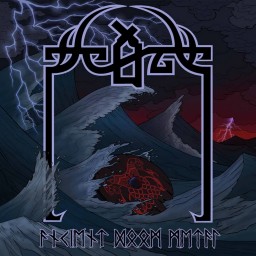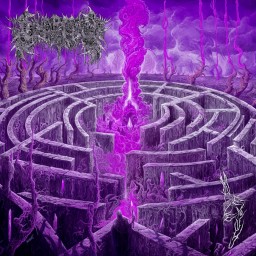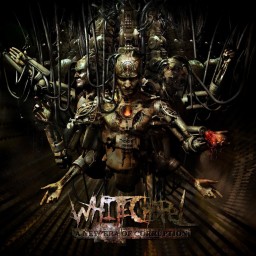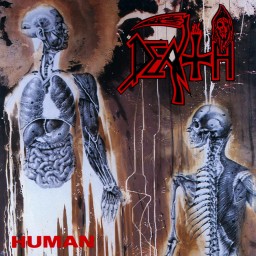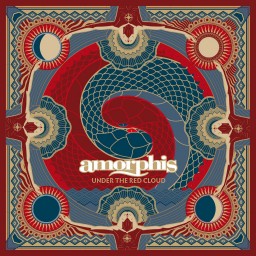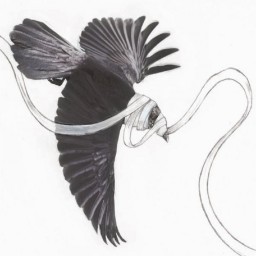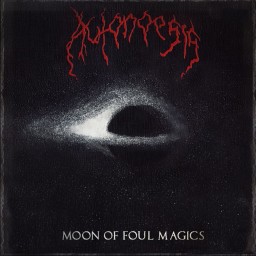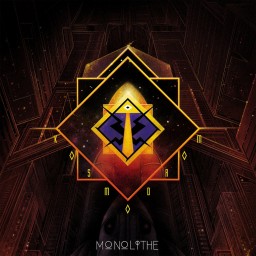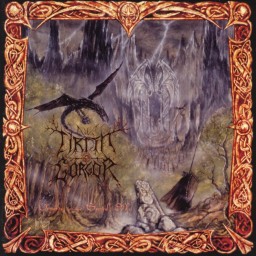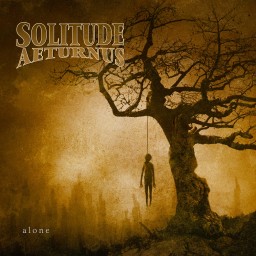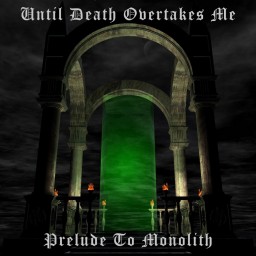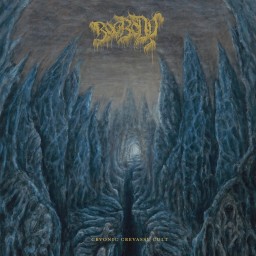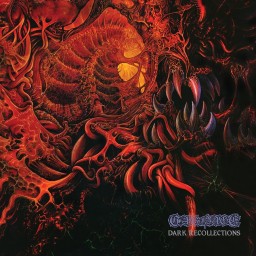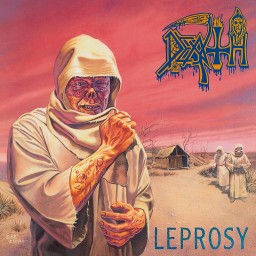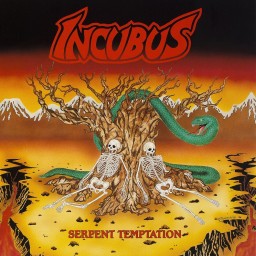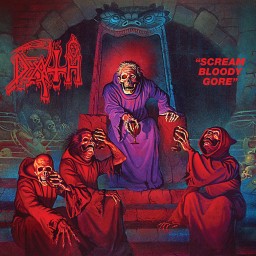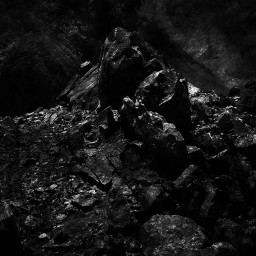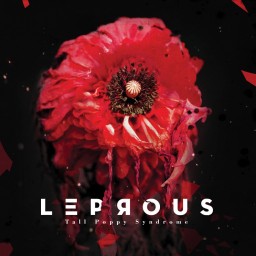Sonny's Reviews
Fear Factory were one of the first new bands I got into when I returned to metal fandom in the late 90s, playing the hell out of Demanufacture and Obsolete, then a bit later, Digimortal, yet for some reason I never got round to the band's debut. Coming to it so late and with the benefit of a huge chunk of hindsight, it is plain to hear that Soul of A New Machine is the product of a band that is in transition from an established genre to a brave new world as they explore interesting new directions for their sound. With this in mind, I would have to agree with those who say that Soul of A New Machine is more important historically than it is enjoyable, with the lack of any truly memorable tracks being the main case for the prosecution. That isn't to say that this is a bad record, because it isn't, but it does have the feel of a transitional piece with the band casting around for a solid indentity. I do hear what Daniel is saying about the groove metal element because one comparison that sprang to mind for me, particularly during the early tracks, was Sepultura's Chaos A.D. which was released a year later, although I would agree that it is only a secondary tag at best. Of course one of the main features of the album and the one for which Fear Factory would become synonomous is the industrial sound of the chugging riffs and the hard-hitting and machine-like drumming of Raymond Herrera. This is a sound that would be incredibly influential, for better or worse, on a new generation of bands like Marilyn Manson, Slipknot and Rammstein. There are still some tracks that are more rooted in death metal or even grind, but these seem to be some sort of vestigial anachronisms left over from the earliest incarnation of the band, like some kind of musical appendix.
One aspect of Fear Factory's earlier output which cannot be overstated is the importance of Burton C. Bell's dual harsh / clean vocals. Bell is an accomplished death metal growler, but his clean vocals are so well-suited to the material with a soaring, disembodied feel that seems to contain the soul of the narrator when confronted by the solid, dehumanising reality of the more tactile industrial atmospheres and the effectiveness of this contrast between human and machine perspectives is what sets FF apart from other industrial metal proponents. There are a few samples scatttered throughout and I suppose if you are going to use movie samples then you can't really go wrong with Blade Runner and Full Metal Jacket can you?
Decent enough though this debut is, for me it will always be merely the stepping stone to the classic that is Demanufacture, but it is still interesting enough in it's own right as it does illustrate exceedingly well how a seminal band transitions from a trend follower to a trend setter. They would seriously up the ante songwriting-wise on subsequent releases and lack of memorability would no longer be an issue for them, as they sorted out where they wanted their sound to go and then were able to concentrate on songwriting as they were no longer exploring what works and what doesn't. Interesting rather than indispensible.
Genres: Death Metal Industrial Metal
Format: Album
Year: 1992
Wolves in the Throne Room (WitTR) were formed by and revolve around brothers Aaron and Nathan Weaver in 2002. They are from the Pacific Northwest of the US and are considered to be the progenitors and prime movers of the niche sub-genre of atmospheric black metal known as Cascadian black metal (named for the Cascade mountains, a range that extends from British Columbia to northern California and which the band call home). They are also the first US black metal band that managed to make any real lasting impression on me. Sure I'd listened to a few prior to the Brothers Weaver - Absu, Agalloch and Nachtmystium had all been given ear-time, but none had really got their hooks into me until this 45 minutes of atmospheric black metal nirvana forced it's way into my CD player courtesy of a like-minded metalhead I worked with at the time.
Two Hunters is the epitome of what atmospheric black metal strives to achieve, utilising the savage and harsh sound of black metal in such a way, through repetition and subtle chord changes, that the result is something beautiful and even, dare I say, transcendental at it's best. The music truly does evoke the awe-inspiring and imposing might of the United States' northwestern wilderness (admittedly I have never been there, but I have watched enough National Geographic channel documentaries to have some idea of the impressive scale of the region). From the slow build of the opening post-metal instrumental, Dea Artio, right through to the ending of the eighteen-minute epic I Will Lay Down My Bones Among the Rocks and Roots and it's haunting female vocal, this album absolutely drips with an atmosphere that most others can only dream about getting close to recreating, despite many trying.
After the gathering thunderheads of Dea Artio's ominously building post-metal fade into the aether, the band launch into their trademark wall of sound, built from successive layers of bass and guitar and underpinned by the metronomic drumming and crashing cymbals of Aaron Weaver that signal the beginning of Vastness and Sorrow, a track that manages to convey a feeling of both vastness and sorrow quite sublimely throughout the entirety of it's twelve minutes. For the early part of third track, Cleansing, we are treated to the ethereal beauty of Jessika Kenney's clean, sirenic vocals over a ritualistic soundscape as Aaron's drums beat a primal rhythm to act as a gentle interlude and introduction to the track which ultimately explodes with full force. An interesting point is that on the double vinyl versions of the album, the introduction is greatly extended, taking the track from almost ten minutes to nearly sixteen and allowing an even more gradual build with a more ambient, choral opening.
After Cleansing we are treated to the album's epic closing track I Will Lay Down My Bones Among the Rocks and Roots, my personal favourite and one of the best titles for an atmo-black track yet written. This eighteen minute modern saga tells the tale of a future apocalyptic conflagration that engulfs the Earth, yet the song's protagonist, a woodland spirit of the natural world, takes refuge in his sacred grove, awaiting the time when he (or she) can return and begin the land's great renewal. Again, running counter to accepted black metal aesthetic, this is a track that ultimately has a positive outlook with it's theme of death and rebirth and the necessary clearing out of the old to make way for the new. Everything on this track screams epic, with it's heaving and melodic depiction of global disaster and the ultimate rebirth, signalled once more by Jessika Kenney's heart-rending final vocal as it heralds in the New Day.
Two Hunters is WitTR's masterpiece, one of the finest USBM album's ever commited to disc and is one of the absolute best atmospheric black metal releases, to be held up alongside the likes of Drudkh's Blood in Our Wells, Ulver's Bergtatt: Et eeventyr i 5 capitler and Burzum's Hvis lyset tar oss in the atmo-black pantheon.
As a postscript, aside from the extended version of Cleansing, the vinyl editions of Two Hunters have an extra track in side 4's To Reveal, another sixteen minutes of sublime black metal, very much in keeping with the rest of the album. I'm assuming that the vinyl version is the full Two Hunters experience as envisioned from the album's outset, as both the extra track and the extended intro to Cleansing sound fully integrated in this version and, presumably the original CD version was edited to allow for a less intimidating runtime.
Genres: Black Metal
Format: Album
Year: 2007
As the godawful winter of 1984 was about to turn into 1985 my musical heroes were, quite frankly, starting to suck. Sabbath had released Born Again the year before, Brian Robertson had fucked Motörhead up, the stalwarts of the NWOBHM were fading fast, Priest had been in decline for ages and hair / glam metal seemed to be the only shitty game in town as far as metal was concerned.
Then, on a whim, I picked up a copy of a various artists metal comp called Hell Comes to Your House in the desperate hope of finding something on it that didn't blow. Most of it wasn't very good, but then I heard IT. IT being Metallica's Creeping Death and IT blew my fucking mind! That one hit of Bay Area genius was the heaviest thing I'd ever heard and was all I needed to turn me into a thrash junkie. Suddenly things were looking up!
Of course, I went out and bought the album that spawned this awesome song as soon as was humanly possible - infuriatingly I did have to wait until the next day when the shops opened and then, even more infuriatingly, another week or so because the crappy local record shop had to order it from the wholesalers (kids today, you've never had it so good with your fancy internet-thing!) So in the meantime I drove everyone nuts playing Creeping Death over and over again until I had the hallowed album itself in my now clammy, shaking hands.
Anyway, enough with the context and on to the music. Metallica's debut, Kill 'Em All was and is, a great, raw slab of break-necked thrashing mayhem. Ride the Lightning, however, showed a quantum leap in songwriting ability, providing more than just high speed riffs to bang your head to. Sure, if you wanted that, this had it - Fight Fire With Fire and Trapped Under Ice to name just two provided that in spades. However, with tracks like For Whom the Bell Tolls and Fade To Black, the band showed they weren't afraid to rein the rampaging tempo in and slow the tracks down to allow them room to breathe and exhibit how the foursome's songwriting was rapidly maturing.
The aforementioned Trapped Under Ice and Escape kick off side two and both are good songs, but in the context of the rest of the album, I feel they are a step down in class, but all that is completely blown away by the album's closing brace - Creeping Death and it's telling of a vengeful god's infanticide against the pharoah and his people, followed in short order by instrumental The Call of Cthulhu and it's reference to a very different god. These two tracks back to back still stand as the epitome of thrash metal to me.
Master of Puppets is a slightly more consistent album in terms of songwriting quality, but this record stands as a monument to the coming-of-age of thrash metal as a genre and, for me, a personal landmark on my road of metal discovery.
Genres: Thrash Metal
Format: Album
Year: 1984
Wretch were formed by former Gates of Slumber main man, guitarist and vocalist Karl Simon, after the demise of GoS in 2013 and this self-titled album was their only full-length release during their eight-year existence. The album also features former GoS drummer Chris Gordon, so it would be reasonable to expect the two bands to sound very similar. Well, kinda, but on "Wretch" Simon forewent all the classic metal sword and sorcery imagery so often indulged by his former incarnation and focussed more on personal and emotional issues, largely in rection to the death from a heroin overdose of his best friend and former Gates of Slumber bassist Jason McCash in 2014, as encapsulated in lines from opener "Running Out of Days": "Final day, Sad song, Sung again, The needle stole away my friend".
The album is really quite short, its seven tracks only spanning 32 minutes with two of those being instrumentals and another is a Judas Priest cover of a track from their Rocka Rolla album ("Winter"). Musically "Wretch" is authentic, Sabbath-inspired trad doom as plied by the likes of Saint Vitus or The Obsessed. In fact, in truth, Simon sounds incredibly similar to Scott Weinrich, both in his vocals and guitar playing, with the same kind of "tight but loose", bluesy guitar style and "cigs and whiskey" vocals favoured by Wino himself. Despite its brevity this is not an inconsequential album and has a deep and resonant feeling, both in guitar tone and with the grizzled vocals. A big feature are the blues-infused guitar solos that Simon unleashes at every available opportunity, which have a stoned-out, jamming quality (check out the instrumental "Blood Finger") but which retain coherence thanks to the excellent foundational work of drummer Gordon and bassist Bryce Clarke who hold things together whilst Simon heads off on his six-stringed flights of fancy.
The production is very good indeed with a crispness to the riffing and sound overall that doesn't negate the "smoky cellar" vibe that all the very best trad doom metal tries to reproduce, yet which allows every note to be heard perfectly, with a distinct lack of muddiness that can often bedevil many doom releases. Inevitably, I guess, my favourites are the slower, more down-and-doomy tracks such as the lengthy "Icebound" and "Drown", but there are very few missteps here with even the clean-sounding short instrumental "Grey Cast Mourning" acting as a nice contrast, sandwiched as it is between the album's two doomiest tracks.
Wretch split in 2021 with their only further release being a 3-track EP (two of which were GoS covers) and since then Simon has reformed Gates of Slumber who put out a new album in 2024 (which I have to shamefacedly admit I haven't heard yet). I would have liked to have heard a bit more from Wretch as this, despite its brevity, shows much potential for a top-knotch contemporary traditional doom metal outfit to show some of the less impressive contenders exactly how to do it.
Genres: Doom Metal Stoner Metal
Format: Album
Year: 2016
Dust off those hand-painted lead figures, dig out the D20s and fill your personalised, engraved pewter tankard with foaming ale, because Blazon Rites are here with their Battleaxe of +4 Damage to deal righteous retribution to the evildoers and ne'er-do-wells that plague the lives of mere simple folk. Yes, Blazon Rites leave no uncertainty as to their love of fantasy with both their cover art and their, frankly, exceedingly cheesy lyrics. But, you know what, as a one-time table-top role player myself, back in my youth, I thoroughly enjoyed this romp through the wilds and taverns of fantasy stereotype.
Musically and, to a degree, aesthetically, they remind me somewhat of Solstice, or, to be more accurate, Rich Walker's short-lived side project, Isen Torr, whose Mighty & Superior EP may have been a touchstone for BR. Vocalist Johnny Halladay very much reminds me of Sami Hynninen, to the point where I had to check that they weren't yet another project of the Reverend Bizarre frontman himself (they aren't, they are from Philadelphia). Anyone thus familiar with old Witchfinder will also realise that, in a Maiden-esque, heavy metal set-up this means there are limitations in the vocal department. For me this isn't a problem, but anyone looking for power metal hystrionics (which you may well be justified in doing considering the album's optics) you are going to be severely disappointed. In truth, Blazon Rite aren't particularly sophisticated song writers, with the opener "Autumn Fear Brings Winter Doom" probably being the pick songwriting-wise and this is an area where they leave scope for improvement. That said, they do kick out decent, fist pumping heavy metal riffs and lead guitarist Pierson Roe delivers Adrian Smith-like leads with aplomb. What they do exude by the barrel-full, though, is enthusiasm and a seemingly genuine love of heavy metal and its fantasy trappings and that is not to be underestimated in a world where musical experimentalism and po-faced seriousness threaten to crush all sense of fun out of the genre. I think us internet metal nerds sometimes forget that metal can just be entertaining and fun without us feeling guilty about not pushing ourselves with every release we listen to, or not contemplating the depths of our psyche with every lyrical musing. So crack open a beer, kick back and feel a smile crawl across your face thanks to the simple metal fare that Blazon Rite have served up here.
Genres: Heavy Metal
Format: Album
Year: 2023
I never really know how to approach an album like Sodom's latest. A band that are into their fifth decade and with a lengthy string of releases put out an album of familiar-sounding material that, nevertheless, I still find hugely entertaining. This leaves me wondering exactly what I can say about it that may be of any interest or value to anyone other than "here is another Sodom album where they do their thing". Whether you love it or hate it depends entirely on your already probably long-established opinion on the band because this is so typical of them that it won't budge your prevailing opinion one way or the other. In fact, Sodom are so established a name that most people had probably made up their mind about The Arsonist long before actually hearing it. I don't think the Germans always get the praise I feel is their due and when they do it almost feels grudgingly given compared to the plaudits for their countrymen like Kreator or Destruction. In that respect I kind of look on them as the german version of Anthrax. Personally I look on Sodom as a bit of a poseur-filter, by which I mean that I see them as a band beloved only by dyed-in-the-wool thrashers and not really being one for the casual genre tourist.
Anyway, on to the Arsonist. I have to say I have had a pretty good time with this over the last two or three days. Their aggression seems undiminished by time with Angelripper often sounding like he is about to burst a blood vessel such is the viciousness of his vocal delivery, they still dish out some titanic thrash riffs and unleash several pretty tasty solos. There are two or three real belters on here with "Trigger Discipline", "Sane Insanity" and "Twilight Void" being the tracks that particularly tickle my fancy. I don't feel the need to say that this is a great album considering the band has been in existence for so long, because that would be condescending, but I have to say that is a good album by a band who have been around the block many times and who know exactly what they are about and who their target audience is.
If there is one caveat to all this positivity then it is the album's production. The Arsonist is undoubtedly the latest casualty in the Loudness Wars, with massive compression that sees everything cranked up well beyond 11. The drums also feel pushed too far forward in the mix and even run the risk of occasionally drowning out the riffs. That aside though, this is a decent album that shows that Sodom can still deliver the thrash metal fix that some of us stubborn thrash-heads crave and for that I am extremely thankful.
Genres: Thrash Metal
Format: Album
Year: 2025
As I mentioned previously, I have only had a brief, but exceedingly positive, association with Aeternus. Their 1995 "Dark Sorcery" EP is one of my favourite black metal EPs and their 1997 debut album "Beyond the Wandering Moon" isn't bad either, so I went into this in a positive frame of mind. Luckily, this uncharacteristically positive attitude wasn't misplaced and this is a nice slab of medium-paced, melodic, norwegian black metal that was very easy to get into with Immortal being an obvious touchstone for me.
A striking atmosphere is set with the introduction to the epic opener, "There's No Wine Like the Bloods Crimson" which starts off with a warrior's raging and a brief snatch of liturgical singing before giving way to a martial drum beat which sets the conflict-riven battlefield scene where most of the album's events take place. The theme here is the horrors and glories of war, particularly toe-to-toe, whites-of-their-eyes, blood and guts medieval warfare. The riffs are fairly melodic and memorable enough to catch yourself humming along occasionally. The odd riff also has a folk metal component to it, with second track "As I March" containing a prime example. The sound is pretty thick, not the lo-fi, washed out and icy thin sound often associated with nineties black metal, but with a noticeable death metal influence which is well-suited to the blood-riven theme of the album. I always love a good drum track and Vrolok's percussive contribution is well-handled here. The track "Blodsverging", where he really gets to let rip, is a great example. I am not clued in enough to know how technically good Vrolok is, but the drums sound absolutely brilliant and I love what he was doing with the aggressive, but well-controlled, battering that he is visiting upon his kit. There is some fairly sparse utilisation of keyboards, but they are subtly handled and never smother the riffs, merely adding a thin atmospheric layer to proceedings.
I am not going to claim that "...And So the Night Became" is a top-drawer norwegian black metal classic or anything, but it is very good and I found it exceedingly easy to get into with a musical consistency and atmospheric integrity that showcases the songwriting skills of all involved. Aeternus may not get a huge amount of credit or acknowlegement in the black metal world, but here they reveal themselves to be a very accomplished black metal act that almost certainly deserve more plaudits than they receive. There is some really good stuff on here and this is definitely an album I will return to in the future.
Genres: Black Metal
Format: Album
Year: 1998
I don't recall ever having crossed paths with this Brisbane disso-death crew before - and I think I would remember if I had! In all honesty, Vexovoid inhabits a place so far outside my comfort zone that I need a telescope to see it. It consists of the kind of dissonant elements that provides me with a notion of what it must be like to teach a class of ADHD-affected toddlers. Flitting from musical idea to musical idea like a moth round a flame, it doesn't give me anything to attach an anchor to and so leaves me feeling adrift and detached from the disconcerting and infernal chaos they summon. The sound is huge for sure and it bludgeons and batters like any good death metal should, but it piles elements upon each other like a motorway crash and has a similar effect on me, making it terrible to behold, whilst also making it hard to ignore. Occasionally, such as during the first half of the track "Plasm", it reminds me of some of the more brutal war metal efforts, and this is when it appeals to me most, but its constantly shifting focus means I find it difficult to stay the course and I end up wishing I was listening to actual war metal instead.
All this being said, I can't help wondering that if I were to persevere with this whether it might reveal the appeal others evidently find in it. There are individual fragments that sound great with a huge tidal wave of sound that threatens to sweep away all before it, but I find these to be momentary and fleeting as the band soon turn yet another sharp corner and leave me wondering where they have gone. Look, I know that the problem is mine and that my low tolerance for both the dissonant and experimental is the deciding factor informing my opinion here, but that is a barrier that Vexovoid is never going to surmount, I don't think. Even though it may be one of the best examples of its ilk available, I would venture that this is never going to find much favour with me. On the plus-side, it is very short.
Genres: Death Metal
Format: Album
Year: 2013
I have been following Mares of Thrace for a while now, since their 2012 album The Pilgrimage in fact and I was a big fan of previous album The Exile, so I was looking forward to this one. The Loss is essentially a concept album dealing with the five stages of grief, a theme eminently suited to the band's desperate and anguished version of sludge metal.
Band mainstay, guitarist / vocalist Thérèse Lanz has always had a striking vocal approach, maintaining levels of aggression many can only futilely hope to achieve, but here on The Loss she has ascended to a whole new level of vocal anguish and fury, imparting additional heft to the album's concept of grief and loss. Production-wise, since Casey Rogers jumped on board as musician and engineer / producer the band have never sounded better with his production work increasing the depth and basic heaviness of their sound, adding real weight to their already existing nihilistic aggression. The riffs are very good and are rendered crushingly heavy by Rogers' work behind the desk with a huge bottom end which also doesn't appear to flatten out the upper registers or compromise Thérèse's anhuished shrieks or wails.
The instrumentation and songwriting has once more improved with The Loss taking on aspects of atmospheric sludge, often combining the hulking, atmospheric layering of Neurosis with the visceral rawness of Eyehategod which has the effect on the listener of being bowed by crushing weight whilst being sharply stabbed with stinging barbs. The album is instrumentally coherent, yet never becomes samey with each track having a feel of its own, in keeping with the theme of each track covering a different stage of the grieving process.
I find an honesty and openness in Mares of Thrace's releases that you don't necessarily encounter that often, with Thérèse's vocals in particular giving the impression that she probably has an intimate knowledge of this latest album's concept. But not only that, she also has the vocal expressiveness to be able to impart a convincing taste of the awful and debilitating effects of dealing with such an emotionally charged subject. This is the kind of release on which the Fallen thrives and, despite the emotionally challenging material, this is a genuinely impressive and relevant addition to the clan's canon and if this is a just world it will see the duo gain much wider acclaim.
A solid "A" grade from me
Genres: Sludge Metal
Format: Album
Year: 2025
Black Sabbath, with Ozzy as frontman, birthed and popularised metal for so many of us old metalheads and Dio helped to resurrect the tottering giants from the terminal decline into which their drug-ravaged delusions had pitched them, delivering a couple of indisputable all-time metal classics in the process. So, come on people, revisionism can only go so far and to consider the Tony Martin era with anything like the same degree of respect as the Ozzy and Dio eras is disingenuous at best. But, that said, it is what it is and these albums still have the world's finest riff master plying his trade and no amount of awful 80s-style over-production can disguise that fact. On the odd occasion when I do listen to albums from this Sabbath era, I do my best to strip away the production in my mind, so I'm not hearing something akin to awful AOR shite like Journey or Foreigner, but getting down to the pure heart of the record and that is Iommi's impeccable ability to write riffs. To be fair, none of this is Tony Martin's fault and I have nothing against the guy per se and, in truth, he is a gifted singer who doesn't sound all that different to Dio as a quick listen to "The Law Maker" will attest - shut your eyes and it could be the diminutive one himself throwing horns left and right!
But, I will never believe that layered keyboards and harmonised backing vocals have any place on a Sabbath record and on a track like Jerusalem they are a bridge too far, especially when coupled with one of the weakest riffs Iommi has ever written, then it is a big ask for me to get too heavily behind it. The best tracks here are the ones that are recognisably continuations from previous band iterations, "The Sabbath Stones", "Anno Mundi" and "Valhalla" would all have sat comfortably on Heaven and Hell or Mob Rules, if not for the production equivalent of 1980's big hair and shoulder pads.
So, in summation, for me this is an album with a fistful of decent tracks, alongside a couple of duffers, dragged down by a production sound that, whilst beefing up the guitar tone, throws the drums way too much to the fore in a way that has become decidedly dated. Overuse of layered keyboards and harmonised backing vocals irritate me at the best of times, but on a Black Sabbath album this is totally indefensible to me. I can't hate this, because underneath it all the riffs reign supreme, but I will never love it either.
Genres: Heavy Metal
Format: Album
Year: 1990
I really loved Cryptosis debut, Bionic Swarm, it being one of my top albums of 2021. Since then, however, they seem to have dropped off my radar and I am behind on both 2023's The Silent Call EP and this, their full-length follow-up to Bionic Swarm. First impressions are that this is a much less fevered and more progressive album. The debut, despite the science fiction premise, turned in some pretty brutal riffs and blistering tempos for the most part, where this feels to be a more sophisticated affair in the main. Don't get me wrong, this still delivers some great riffing and has some breakneck pacing too, which is obvious as early as the first track proper, "Faceless Matter", but the increasing emphasis on atmospherics such as synths and jangling tremolo embellishments lends it a more expansive aura, rather than the tight, jet-fuelled blowtorch attack of the debut. With vocalist Laurens Houvast favouring a more black metal style of delivery this time around, alongside the atmospherics, it leads me to ponder whether the band were aiming for a kind of thrash metal Emperor sound, a question worthy of consideration I think.
Subsequent listens, when the atmospherics had had time to sit with me and so not stand out so much, it was more than evident that the tightly focussed core of the band's sound is still present and correct, delivering supercharged riffs and blistering drumming that drives the tracks forward at a hyperkinetic tempo. This time round, though, Cryptosis are unafraid to slow down and allow the listener time to catch up, take stock and appreciate exactly what is going on around them. Static Horizon, for example, kicks off at a fair old lick, with absolutely loads going on: a melodic and memorable main riff, a prominent bassline doing all sorts of interesting things and jangling leads, keyboards and choral effects providing a thick atmosphere. Then for the last minute the pacing slows and the keys provide a serene calm eye in which the listener can process the previous four minutes.
Assuredly this is still a technical / progressive thrash metal release, but the vocals and jangling tremolo leads give it a decidedly frosty atmosphere that more than dips its toes into black metal waters. I am undecided at the moment whether this difference in atmospherics makes this a better album than Bionic Swarm or not. Or it could be that they are equally great, just... different. Everything I loved about the debut is still here, but it has been refined by an increase in atmospherics and a slight shift in songwriting aspirations. I haven't yet decided if that has blunted its effect or enhanced it, so for now I must sit on the fence with this one, although it is still pretty good, no matter what - I'm just not sure how good.
Genres: Black Metal Thrash Metal
Format: Album
Year: 2025
Like Saint Vitus, Trouble formed in 1978, but also like their californian counterparts they didn't release their debut album until 1984. In fact Vitus' and Trouble's self-titled debuts were only released a month apart, with "Saint Vitus" issuing forth in February and "Trouble" (later retitiled "Psalm 9") following in March. Preceeding the album, the track "Assassin" was released as a single, backed by a doomy cover of Cream's "Tales of Brave Ulysses", which was decent enough, although Eric Wagner does struggle with some of the higher registers. "Assassin" was chosen as the lead single, I suspect, because of its strong resemblance to NWOBHM stalwarts Diamond Head in an attempt to garner some traction with the fans of the english heavy metallers.
Trouble are well-known for their Christian-themed lyrics but, in all honesty, I never realised this for the longest time because the lyrical content doesn't affect the darkness of the music at all. Their beliefs don't become that apparent until you actually sit down and go over the lyric sheet. The preachiness and happy-clappy demeanour of so many Christian-themed acts was something that Trouble managed to avoid, concentrating more on the music and less on converting the long-haired masses of young metalheads who comprised their prospective audience. This is a band equally at home pouring vitriol on unfeeling leaders with lyrics like "Come on people, let me hear you say, You fuckin' Bastards, you're gonna pay" as they are beseeching their lord for mercy with "I will praise thee O Lord, I will sing praise in thy name, Don't forget the cry of the humble, Have mercy on me".
Instrumentally, "Trouble" has quite a clean and well-produced sound, much more akin to Black Sabbath than the grimy grittiness of Saint Vitus' more distorted and downtuned debut. The band also employ a wider variation of pacing than is often encountered within the context of orthodox doom metal, but make no bones about it, when they want to, they are more than capable of bringing the doom. Despite their penchant for traditional metal-paced riffs, the downtuned and distorted guitar sound often makes the material feel slower and doomier than maybe it actually is. As well as varying the pacing from track to track they are also apt to change the velocity of the riffs within a given track, such as on the opener, "The Tempter," where, after an ominous tympanic intro, the riff crawls unctiously from the speaker and Eric Wagner intones a warning from satan himself before the band change up a gear and kick into a riff Angel Witch would have been proud of as the forces of good rally themselves. This then alternates with the slow, crawling riff as The Tempter tries his powers of pursuasion on man and quickens again when The Good resist. There is even a rocking, bluesy riff accompanying the guitar solo after the second verse, typifying a diversity that more doom-centric releases may lack. That said though, when they embrace a doomier, darker side, such as on "Victim of the Insane" then they are perfectly capable of conjuring up as sinister and ominous an atmosphere as anyone.
Vocalist Eric Wagner is, of course, a legendary name within doom metal circles, although I am sure his vocal style isn't to everyone's taste. Sure, he does sound like a strangled cat occasionally, but, similarly to Scott Reagers on Saint Vitus debut, his higher-pitched style does act as an effective counter and contrast to the low-tuned guitar and bass assault of the riffs. Unconventionally pleasing and technically restricted vocals, of which Wagner's are a solid example, have long since become the norm within doom metal circles and Wagner, Reagers and company, in the spirit of Ozzy Osbourne, were a big factor in that.
I cannot claim that I hold Trouble's debut up as an absolute top-drawer traditional doom metal release as, in all honesty, it doesn't commit enough to the doom aesthetic for me, despite showing promise with the likes of "Victim of the Insane". There are also a couple of clunkers among the tracklisting, with "Revelation (Life or Death)" and the instrumental "Endtime" in particular just not sounding coherent enough within the context of the rest of the album. That said, there is enough quality elsewhere to provide a really solid listening experience and this is ultimately an album that further bridges the gap between traditional heavy metal and doom metal proper and as such deserves the time and respect of all doom metal fans.
Genres: Doom Metal
Format: Album
Year: 1984
Knowing nothing of Code, I did my due diligence and it turns out that they are from the UK, or at least founding member (and only remaining member of the lineup that recorded Nouveau Gloaming), Aort, is. He began the band as a solo project called Seaonal Code in 1998, recording a number of demos before shortening the name to Code and expanding the lineup by bringing in fellow Brit Kvohst as vocalist and recording a further demo in 2002. Further expansion to a five-piece with the addition of US guitarist, Vyttra and a norwegian rhythm section of bassist Viper and drummer AiwarikiaR, saw the release of this, their debut, in 2005.
An initial, cursory listen-through reveals something a little unusual with Nouveau Gloaming, which is the liberal use of clean vocals on what is, essentially, a black metal album. Not exclusively, to be sure, but enough to make the listener sit up and take notice. Kicking off with opener, "The Cotton Optic", things begin fairly conventionally with a very tightly-performed slice of conventional black metal which has a memorable, medium-paced riff that wouldn't sound out of place on a Satyricon album. Very soon, though, things take a different turn with second track "Brass Dogs" being the first to feature the aforementioned clean vocals. It starts and ends with a crackling sound and those clean vocals, recorded very thinly, as if playing on an old record player through cheap speakers. A fairly ominous and slow-tempo tremolo riff joins in along with sluggish drum beats to provide accompaniment to the, obviously deliberately, oddly-produced and slightly disorientating vocals. This is quite a stange track and it does have a kind of disconcerting effect on the listener, which, after the fairly conventional and accessible opener made me wonder where Code would be taking us next.
"An Enigma In Brine" has a post-black feeling to it, with the tremolo riffs forming a wall of sound, alternating clean and harsh vocals and a slow tempo, with lumbering drumbeats, eventually building in tempo and intensity. This is followed by "A Cloud-Formed Teardrop Asylum" which begins with a liturgical chant vibe and those increasingly familiar clean vocals before turning in a progressive black direction that feels a little like the kind of track latter-day Enslaved would be very comfortable with, sounding both epic and poignant, although I felt it ended a little too abruptly.
I think by now you get the picture that this is not exactly your typical black metal album, but something far broader in scope, with a diversity of structure and texture from track to track. It must be said, however, that the album as a whole, despite the individual tracks' diversity does have a coherent and cohesive tone and atmosphere, with a general feeling of discomfort and unease generated by the feeling that something is somehow amiss. I see that the band later went in a more progressive direction and that is certainly hinted at here in their earliest work as even this early on they seem to be seeking to breach the boundaries and constrictions of their chosen genre. Technically the band sound consumately accomplished to my untrained ear and their songwriting is forward-looking and ambitious, building a fairly unique atmosphere with their musical abilities rather than relying on production techniques to do the heavy-lifting atmosphere-wise as some are wont to do. The production is exceedingly clear and allows each member ample exposure in the mix.
I must admit I am very pleasantly surprised by Nouveau Gloaming as I was unaware of the UK having been the home of such a unique black metal release. It is both accessible and thoughtful, whilst still generating the kind of uneasy air that great black metal is so consummately suited for and is one of the UK's more interesting black metal efforts.
Genres: Black Metal
Format: Album
Year: 2005
In 1992 diSEMBOWELMENT released this three-track EP of material which would eventually show up again on the band's seminal "Transcendence Into the Peripheral" album, released the following year. The first two tracks, "The Tree of Life and Death" and "A Burial at Ornans" are quite rough and ready and are re-releases of rehearsal demos recorded in March of 1991, with only the last track "Cerulean Transience of All My Imagined Shores" being recorded specifically for release on this EP. I must be honest and admit that I have constantly struggled with the legendary status of "Transcendence Into the Peripheral" and there is something I find much more appealing here, particularly in the stripped-back versions of the first two tracks. Listening to the version of "The Tree of Life and Death" presented here alongside the later version, the drum sound is a lot less prevalent than it is on the album version, sitting more where I would expect it to in the mix of a doom metal album so that when the blastbeats hit they don't swamp everything else like they do on the album version. I think the generally more scuzzy production on the EP suits the material better as well, the heavy echoing effect of the album being unnecessary here, so that it sounds more natural than the album does. "Transcendence..." has a greater clarity for sure, but I am not convinced that that is to the benefit of the material because the foetid, abyssal nature of old-school death doom is really suited to lo-fi production values such as we have here on the EP.
OK, comparisons with it's younger and bigger sibling apart, what do we have here? Well, three fairly lengthy tracks of extreme metal that cover quite a few bases during their runtimes, from blasting death metal, through the hulking, ominous death doom that was taking off big time with certain sections of the early Nineties' extreme metal scene, to something even slower and more morbid-sounding, specifically during "A Burial at Ornans", which foreshadows the funeral doom of Thergothon's "Fhtagn-nagh Yog-Sothoth" demo, still six months in the future. The EP exudes a menace and primally evil aura heightened by Renato Gallina's abyssal demon's low, rumbling growl for a voice which may well induce nightmares in the mentally delicate. The skull-crushing weight of the simple, lumbering riffs may have been one of the heaviest things ever set down on tape up to that point in time, with a disgustingly filthy guitar sound that only adds to this gravitational magnitude. Both "The Tree of Life and Death" and "A Burial at Ornans" feel quite epic, involving multiple tempo changes during their runtimes, but epic in a huge, decayed and rotting carcass kind of way.
The closing track of both this EP and the full-length, "Cerulean Transience of All My Imagined Shores", sounds more like it's later incarnation, minus the opening ambient intro. Obviously recorded at a different time to the first two tracks, it has a much clearer production which gives the lead guitar a chiming, ringing tone in contrast to the deep, bestial roar that passes for vocals and the thundering basswork. The drums are further up the mix than they were on the other tracks, but not to the extent of the album and are perfectly suitable. This is the track more than the others which foreshadows the advent of Funeral Doom on the extreme metal scene, it slowing to barely a crawl at times, predicting the arrival of the likes of Esoteric, who were formed the same year as this came out. Coincidental? I think not!
I am really glad to have had the chance to check this out because it has solved the irksome puzzle as to why I never got on board with "Transcendence Into the Peripheral" when it appears to be right up my street. The answer is, because of the production, which I find to be incredibly jarring, especially the almost St. Anger-level annoying snare sound. The actual material, as presented here on the EP, is excellent, so that is the only explanation for my resistance to the later full-length.
Genres: Doom Metal
Format: EP
Year: 1992
Carnophage are a five-piece from Ankara in Türkiye, forming in 2006 and "Matter of a Darker Nature" is their third full-length, following eight years after previous effort, "Monument". I haven't listened to the band before, but here they play a style of technical and brutal death metal, the likes of which I have not encountered too often. Now I sometimes have issues with both technical and brutal death metal and, at least in part, those issues are present on "Matter of a Darker Nature". Not so much with regards to the brutal DM side of their sound as that is actually very well presented, being aggressive and vicious-sounding with thick, juicy riffs and a suitably bellowing vocal performance from singer Oral Akyol. However, it is the technical aspect of their sound that I am struggling with, or more accurately, the technical complexity of the songwriting. I can stomach a certain degree of technical complexity in my metal, but at the point where it feels like technical dexterity and songwriting complexity become an album's prime reason for being, sacrificing the coherency of the individual tracks, then I tend to check out. Unfortunately, for me anyway, Carnophage are all-in on the technical side and, in my opinion, often to the detriment of the individual tracks. I found myself really getting into tracks like "Until the Darkness Kills the Light" or the ominous-sounding title track, but then sudden changes of phrasing and tempo interrupt the flow and make the tracks feel choppy and disjointed, for no apparent reason. I know that the issue here is mine and mine alone and I have to admit that the band do sound incredibly adroit technically, with a very tight and focussed delivery and when they start to lay down a brutal riff I'm thinking "yes, here we go", only to have said riff supplanted by an enforced tempo or directional change and me once more feeling frustrated with them.
Multiple listens have tempered my annoyance with the technical aspects and when the band hit it right I found them to be very impressive purveyors of the more brutal end of the death metal spectrum, but an album like this will always leave me with reservations as I find the staccato nature of the music incredibly wearying. Still, good luck to them because even though it isn't exactly my cup of tea, I can tell they are a talented bunch and for those who are in the market for what they are offering, I am sure they deliver the goods.
Genres: Death Metal
Format: Album
Year: 2024
Due to my inbuilt aversion to overtly dissonant or technical death metal I have been somewhat reticent about checking out Ulcerate's latest, but year end is looming and I can't let 2024 pass by without listening to what has been almost universally acclaimed as the number one metal album of the year. I'm really glad I did too, because "Cutting the Throat of God" is an amazing album. I guess in the hands of true masters, even personally challenging material can transcend the inbuilt resistance listeners may have to music that resides well outside their usual comfort zone. What enables Ulcerate to break through my own personal issues with this challenging style of death metal is that they never allow the technicality or dissonance to affect the flow of the tracks. Too often these genres are too choppy and compositionally messy for me, but here the tracks maintain a logical and organic development at all times, with the dissonance and technicality always serving as a tool to relate that which the band wish to communicate rather than becoming the be-all-and-end-all in an attempt to show how clever the musicians are. This is an atmospheric version of death metal that is composed of shades and textures rather than riffs and blastbeats (although those are present). Heavily influenced by acts like Neurosis, Ulcerate utilise the death metal toolbox to produce an emotionally-charged post-metal style of death metal.
The aesthetic of Cutting the Throat of God is based around existential anxiety and the ultimate futility of organised belief structures, hence the atmosphere of melancholic dread that permeates the instrumentation. I don't think that the slightly off-kilter clangourous nature of much of the guitar leads, suggesting the desperate chiming of church bells as if declaring their inability to provide solace, is accidental, but is proof of the band's attention to detail and is testament to their songwriting skills. The constant shifting of tone from introspective and morbid, to angered and explosively violent, further deepens the atmosphere of existential impotence.
Now this is not an especially new aesthetic within extreme metal circles, but very rarely have I encountered such a compelling and coherent expression of nihilistic dread. This success is entirely due to the adroitness of the musicians involved, both technically and compositionally. It is supremely evident that even though much of the album is meant to engender a feeling of chaotic confusion, the songwriting is supremely tight with not a single note out of place and is very far from being confused or chaotic in it's production or execution. Special mention must go out to drummer Jamie Saint Merat whose drum patterns are so complex and precise that I often found myself zoning in on them. So interesting do they sound that I have the feeling I could listen to the drum track in isolation and find it utterly compelling.
I don't wish to give the impression that this is a lightweight affair, because it is exceedingly heavy at times, but sheer heaviness is not the primary directive here and the lighter moments deepen the impact of the heavy. Paul Kelland's bellowing, gutteral roar also contributes to the album's surface-level heaviness, whilst perfectly encapsulating the philosophical frustration and existential dread expressed in the lyrics. The chiming leadwork, despite it's slight dissonant quality, is often deceptively hooky and melodic, with me finding some of the guitar phrases leaping unbidden into mind throughout the day, such is their memorability. The guitar phrasing is also such that it sounds very much like there are certain recurrent themes surfacing throughout the tracks, tying the whole album together.
For me, this is an example of technical dissonance with real soul, which is unusual for a style that I often find to be emotionally sterile. Now, in truth, I don't have the technical knowhow to properly dissect "Cutting the Throat of God" and I may have read too much into it's perceived themes and concepts, but all great art holds a mirror up to the beholder to some extent, so maybe this just resonates with something deep within me. Whatever the reason, this feels like one of the most personal and affecting metal releases I have ever heard and will now, despite some tough competition, almost certainly be my AOTY for 2024 and head towards the upper echelons of my all-time favourites list.
Genres: Death Metal
Format: Album
Year: 2024
Capilla Ardiente are a five piece from Santiago, Chile and features a couple of members of doom crew, Procession, along with vocalist, Felipe Plaza Kutzbach, of Deströyer 666, who also provided vocals for this years "Ancient Doom Metal" album from legendary russian epic doomers, Scald. They play epic doom metal, and I mean with an emphasis on the EPIC. Only one of the four tracks on offer here clock in at less than ten minutes and musically and aesthetically they have as much in common with power metal as they do doom. Sure, the riffs are pure epic doom metal, but the overwrought and histrionic vocals, the shred-like guitar solos and the melodramatic songwriting all scream power metal to me. I can hear where they have clearly taken influence from the likes of Rich Walker's Solstice or Solitude Aeternus, in fact Kutzbach has toured with Solstice as the band's live vocalist on a couple of occasions, but where the great epic doom acts succeed is that they keep the inbuilt pompousness and excess of epic metal under control and exercise restraint when utilising the more overblown aspects of the genre, whereas here the chileans give free rein to all the most bombastic elements of their sound. Make comparison, for example, between Felipe Plaza Kutzbach's performance here compared to that he turned in for "Ancient Doom Metal" and I think that most people would agree his performance is more OTT and less controlled than that he gave on the Scald album. sounding eminently more like a power metal singer than a doom metal vocalist. For my money, epic doom is best when built around the aesthetic of a mournful and sombre yearning for lost glories, whereas "Where Gods Live and Men Die" feels more like power metal's grandiose and bombastic celebration of hegemony.
This certainly isn't a bad record by any means, when they get it right, such as with the hugely mournful riffs and more reflective vocals of "Now Here. Nowhere." it is actually very good, but too often it emphasises the epic side of the genre at the expense of the doom-laden and that will always illicit are more negative response from me. Performance-wise, the guys are technically very good and the production is nice and meaty, occasionally allowing the more doomy moments to shine through. The songwriting is quite good, although they go for a bit more complexity than is the norm for the genre, giving the individual tracks somewhat of a progressive feeling. Undoubtedly, it is a more memorable affair than the previous album with some very effective riffs, but its overly bombastic approach leaves me unlikely to be returning to it too often in the future I think. Still, if your tolerance for this more overblown approach is higher than mine, then there may well be plenty of meat for you to get your teeth into here but for me it's all a bit too much.
Genres: Doom Metal Heavy Metal
Format: Album
Year: 2024
What the fuck is going on in Chile nowadays? It must be something in the water or the mountin air! They seem to have captured the spirit of extreme metal better than almost any other local scene on the planet as we hit the 21st century's quarter-way mark. Churning out album after glorious album of extreme metal nirvana, the area of Chile centred on the capital Santiago and nearby Valpairiso leads the vanguard of the world's Trve Metal Hordes seeking to conquer the despised Legions of the False. OK, all good-natured hyperbole aside, there is definitely a healthy and burgeoning metal scene centred around Chile's capital that is currently pumping out some of the most exciting and aggressive metal to be found on the planet, in my opinion.
Invocation are yet another relatively new band throwing their hat into that swirling maelstrom of a scene with this their debut full-length, which follows a couple of EP's released in 2018 and 2020. They are a three-piece from Valparaíso, the three members only going by aliases, bassist Sense of Clairvoyance, drummer Sense of Clairaudience alongside guitarist and vocalist Sense of Premonition. Unusually for the chilean scene, the three don't appear to be members of at least five other bands, with Invocation being their only outfit from what I can tell (but who knows).
The Archaic Sanctuary is a fairly brief affair, it's eight tracks clocking in at under 35 minutes, with most hovering around the four minute mark. Invocation play a traditional form of death metal, but one that has a sharp-edged savagery derived from blackened edges with an overall filthy tone and a demonic darkness that reminds me somewhat of war metal aesthetics, albeit slower and cleaner. The riffs are heavily distorted buzzbombs that come thick and fast, varying from ripping burnups to hulking, mid-tempo, chuggier affairs. The solos are fairly functional with no self-indulgence or flashiness to distract the listener from the relentless assault the riffs are subjecting them to. Drum-wise, Sense of Clairaudience has a busy and energetic style with an impressive array of blasts and fills at his disposal and a ready willingness to deploy them, but despite the manic energy he displays, he doesn't swamp the riffs. Possibly the snare is a little too present at times and may occasionally distract, but not that much and it certainly isn't a big deal. The vocals are probably the most black metal aspect of the sound, with a harsh, barking roar that reminds me of Marduk's Legion and which sharpens up the bludgeoning edge of the guitar tone and the drum battery.
In truth The Archaic Sanctuary doesn't do much that most extreme metalheads haven't heard before and may leave those seeking the latest Ulcerate-worshipping opus being dismissive, but this is a band who understand the fundamentals of extreme metal and who have served up a withering and pummelling experience for any ardent moshpit denizen to lose their shit to in the knowledge that it will not let up even for a second.
Genres: Black Metal Death Metal
Format: Album
Year: 2024
Coffin Curse are a chilean duo comprising guitarist, vocalist and bassist, Max Neira and drummer Carlos Fuentes. Both are members of Lovecraftian death metallers, Inanna and although this is my first exposure to CC, I am quite a fan of Inanna (and chilean metal in general), so positive vibes all round going in. The Continuous Curse is the duo's sophomore full-length, coming four years after the debut, a significant amount of that time presumably taken up working on Inanna's 2022 album, Void of Unending Depths, before they could get to work on this.
The Continuous Nothing is forty-odd minutes of energetic, old-school death metal with a no-frills approach and as such, is exactly my cup of tea. I like CC's unfussy approach here, they just get on with delivering bludgeoning riffs backed up by really solid rhythm work. The basswork is thick and well presented in the mix, as is quite often the case with chilean metal of all genres, while Carlos' drumming is a big feature, being busy with all manner of fills and blasts, whilst mainting excellent timing and driving the tracks along at a fair old clip.
Max's guitar work is mostly about the riffs. To be sure there are solos, but they aren't really that big a deal, they are decent enough, but are functional and are not an aspect that particularly stands out. Producing riffs is most definitely what Max is about and at this he is very accomplished indeed, the album's runtime being absolutely chock full of 'em. The album has an inbuilt aggressiveness about it that leans towards the early brutal death metal bands, but the riffs also have a melodic accessibility alongside a fair bit of tremolo riffing that tempers that brutality somewhat and which, combined with a "looser" approach ensures that it sits well within the realm of the old-school rather than the brutal. Max's vocals are in the deep, gurgling, growling style with which I am sure we are all familiar, but which he delivers with conviction.
So, overall, The Continuous Nothing delivers no surprises to anyone even remotely interested in death metal. But Max Neira is an astute writer of riffs and the duo's delivery brings out the best of a tried and tested formula that is admirably heavy and threatening-sounding. If you are just looking for some good, old-fashioned death metal for a headbanging frenzy session then Coffin Curse have the prescription you need, but if you are looking for challenging brain food instead, then maybe look elsewhere.
Genres: Death Metal
Format: Album
Year: 2024
Oslo's Abhorration are a four-piece death metal band with members (or ex-members) of bands such as Nekromantheon, Purple Hill Witch and Condor, amongst others. They play an old-school style of death metal that contains a noticeable thrash metal component, played with an infectious energy that makes it feel new and fresh, rather than a tired harking back to "olden days".
Flying straight out of the blocks, spitting fire and venom, Abhorration make their intentions known as the title track that opens the album kicks off in brutally vicious manner before settling down into a more controlled, thrashy riff. The ensuing thirty-six minutes sees them continuing in much the same manner, switching from pummelling and adrenaline-fuelled death metal blasting to groovier, and fairly melodic, thrash-like riffing with each of the six tracks taking this approach to a greater or lesser degree. Into this maelstrom, at the drop of a hat, the band throw a seemingly endless stream of searingly intense guitar solos. The soloing comes very much from the King / Hanneman school of tortured howls, only guitarists Arild Myren Torp and Magnus Garathun use them more frequently and they last longer. Magnus is also the band's vocalist, his style being a harsh, barking style that has a bit of a black metal edge to it. The rhythm section is quite busy, drummer Øyvind Kvam in particular being all over things and this increases the chaotic, seat-of-the pants adrenaline rush that most of the album's runtime provides.
The obvious touchstone for an album such as Demonolatry is early Morbid Angel and Altars of Madness more specifically, and that is a lofty parent to emulate, but I think these Norwegians have given it a good go and have produced a lively and adrenaline-fuelled blast from the past that doesn't feel out of place here in the third decade of the twenty-first century either.
Genres: Death Metal
Format: Album
Year: 2024
Nile finally return with their tenth studio album, almost five years on from 2019's Vile Nilotic Rites. These guys are one of my absolute favourite tech death crews, but even I must admit that they have been somewhat underwhelming over the last two or three albums, so I didn't go into The Underworld Awaits Us All with particularly high expectations. Happily, however, the band seem to have returned, post-pandemic, with a renewed sense of purpose, laying down their best material for some time. They have obviously retained the technical chops and songwriting skill that such well-established names have accumulated over the years, but they have also rediscovered a younger band's vitality and energy that it seemed had deserted them some time ago. They have definitely upped the ante in the brutality stakes on The Underworld Awaits Us All, their technical skullduggery all seemingly directed towards the purpose of hammering your senses with pummelling body blows of visceral and savage precision.
The riffing is some of their best in years, frantic, fierce and energetic, yet flawlessly executed, whilst the soloing is expansive and expressive, yet is also superbly controlled and tightly executed so as not to sound self-indulgent or trite. Particular note must be made of George Kollias machine gun-like drumming which reaches hyperkinetic performance levels without ever missing a beat. The man must be part Terminator to sustain this level of drumming intensity and precision. The production is worth a mention as it is as impressive as the musical performances, with a depth and clarity that allows the entire band to shine and no one suffering for want of presence in the mix, both guitars and drums sounding beautifully crisp and sharp.
This is obviously a Nile record so there is a certain level of grandiosity expected, which is lent an additional level of pomp by the inclusion of operatically choral backing vocals to accompany the usual roaring, deathly growls and the eastern-flavoured interludes are present and correct once more. Despite the emphasis on the Ancient Egyptian themes that permeate the band's very essence, I have never really felt that they get in the way of the music and once more that is true here. The moments where the atmospherics take over are relatively brief, being mainly restricted to the short interludes and the closing instrumental, "Lament for the Destruction of Time", the band never losing sight of the fact that their fans are metalheads who come to hear technically adept death metal that is at once searingly savage and brutally bludgeoning. And in that respect Nile have delivered, presenting us with their best album since Those Whom the Gods Detest and in so doing, rising once more to the top of the tech death tree.
Genres: Death Metal
Format: Album
Year: 2024
The troglodytic german duo are back once more with more tales from the subterranean world of deep mining. From the album's title and the opening crackling of a Geiger counter, the theme obviously concerns the mining of radiactive materials (confirmed by quickly running the lyrics through Google Translate). This is related in the form of six tracks of melodic atmospheric black metal that is chiefly kept at a medium-paced tempo, with blastbeats being used only sparingly.
Initially Uranium didn't really grab my attention as anything particularly special. Yet repeated listens saw the melodies woven by Aragonyth's tremolo riffing lodging themselves in my brain and the dynamic between those melodies and Syderyth's frankly unhinged vocal performance revealed a very satisfying dichotomy between the positivity expressed by the riffs and the negativity expressed by the vocals. I guess in a way this musical tension reflects the trade-off between the dangers and rewards of mining such exceedingly dangerous, yet ridiculously valuable materials.
This is ultimately a far more skillfully put together album than it initially appears and rewards time spent in it's subterranean depths with some fantastic black metal melodies, with penultimate track, "Wismut »Justiz«" even evoking the closing melody of Fear Factory's "Pisschrist". However, black metal should always leave the listener feeling somewhat disquieted and the agreeable melodies are given a sharpened and dangerous edge by the vocal performance, preventing it falling into too comfortable a space and nudging it back into a more disturbing headspace. I really like how the duo have produced the musical equivalent of the steel fist in a velvet glove here and made the listener work a little to uncover it's inner workings with deceptively adept songwriting.
Genres: Black Metal
Format: Album
Year: 2024
Russian outfit Scald's debut album, Will of Gods Is a Great Power, is a somewhat legendary release in the epic doom canon. Unfortunately the band were never able to capitalise on it as the death of singer Agyl in 1997 inevitably led to the band calling it a day. 2019 saw them reform in order to perform at the Hammer of Doom festival with chilean vocalist Felipe Plaza Kutzbach of Procession stepping into the not inconsiderable shoes of Agyl. Things went so well that the band kept going, releasing a placeholder EP in 2021 and finally their sophomore full-length in this, Ancient Doom Metal.
Comparisons with the debut are inevitable, but aren't really useful as that was twenty-seven years ago now and times have changed. That said, whilst this is unlikely to overhaul "Will of Gods.." in the hearts of epic doom enthusiasts, it certainly doesn't tarnish it's legacy either and is a worthy release in it's own right. It gives off a lot of Solstice vibes, particularly later material like White Horse Hill and the Death's Crown Is Victory EP with the riffs and guitar tone having a lot of similarity to Rich Walker's work and that's a big positive in my book because anyone who knows me knows how highly I rate him. Those riffs are impressively huge-sounding with a satisfying solidity and depth to the tone, towering over the listener like the imposing walls of a medieval castle, which is really the requisite for any self-respecting epic doom riff. The riffs aren't the only game in town however, with dual guitarists, Ivan "Harald" Sergeev and Vladimir "Karry" Ryzhkovskiy, skillfully weaving some gorgeously melodic harmonies over the solid base provided by those looming riffs and when they let loose with their solos both guys soar high and far with uplifting and imperious instrumental work.
Naturally, vocalist Felipe Plaza Kutzbach is under the spotlight, as the replacement for the now legendary Agyl, but he proves to be a perfect fit for the band as his style is very similar to the former vocalist and his previous experience with Procession and Capilla Ardiente stands him in good stead and it is difficult to see how anyone else could have pulled this off better. I don't know when these tracks were written, whether they are partially written tracks from the initial incarnation of the band brought to completion or if they are newly-composed and I guess that indicates the consistency between this later collection and the original band's output which, considering the more than quarter century since the former appeared, is no mean feat. Obviously where this new release scores over the debut is in the huge improvement in the production values, with the original sounding almost demo-like compared to modern recordings. In some forms of metal this is no hindrance (and even a plus in some cases) but epic doom undoubtedly benefits from good production and that holds true here too with the increased depth of the sound giving the album a majestic quality that "Will of Gods Is a Great Power" can only really hint at.
Overall then, despite some initial apprehension for a follow-up to such a legendary release, I have to give Ancient Doom Metal a big thumbs up. The title is very fitting and it really does feel like doom metal that is reaching back through centuries of history to a time of mighty warriors, daring deeds and of blood and steel, in other words, all that great epic doom should be and the more I listen to it, the more I find myself falling in love with it.
Genres: Doom Metal
Format: Album
Year: 2024
I hadn't heard of Civerous before Ben suggested their latest album, Maze Envy, for the Fallen feature, but a brief overview had me suitably intrigued. Chiefly, the Los Angelinos play an old-school death metal and death doom hybrid which can trace it's lineage back to the likes of Autopsy, but they also like to throw in some progressive tendencies that updates their sound into a more modern beast. And beast it is, the death and death doom components being pretty brutal-sounding with thick, towering riffing sounding at turns both threateningly ominous and bestially viscious. Yet this maelstrom of menacing violence isn't all there is to Maze Envy, there are also moments of beauty and calm reflection, such as that provided by the post-rock guitar work of interlude track, Endless Symmetry, the intro to Levitation Tomb and the sombre middle section of the progressive title track. Elsewhere the closer, Geryon (The Plummet), has a rich gothic atmosphere, reminiscent of My Dying Bride, complete with violin and keyboards, whilst the opening intro track is all dissonant violin work that feels like part of an avant-garde modern classical piece.
But, all that aside, Maze Envy ultimately lives and dies on it's deathly doom metal credentials. Luckily for all of us, these credentials are impeccable and Civerous know what they are about when it comes to old-school death and death doom metal. Think Coffins, but with more outside influences and atmosphere construction, their layering of fairly thin-sounding keyboards over the doomier passages being a big part of the latter. When they let loose, however, their delivery is devastating. Labyrinth Charm for example, is a brutal, ballistic, full-on charge that features a couple of killer guitar solos and Levitation Tomb is a throbbing chug that sounds like a battalion of battle trolls drumming fear into the hearts of their enemies.
On the downside, one slight criticism I have is that the whole album seems to be a victim of the loudness wars, making it sound like it has been fed steroids to pump it up to unnecessary sound levels, a move that the band hardly need as the music itself is sufficiently aurally arresting without resorting to additional production techniques. On the whole, though, this is a great example of the evolution of the old Autopsy sound into a very modern version of progressive death doom metal, featuring technical skill and imperious songwriting technique, resulting in an album worthy of the attention of any death doom fanatic looking for something that stands out from the crowd.
Genres: Death Metal Doom Metal
Format: Album
Year: 2024
My history with Whitechapel amounts to little more than a couple of dalliances with tracks on cover discs from metal mags like Terrorizer and Zero Tolerance a decade or more ago now and I can't say I had much time for them. Well, I guess my tastes must have broadened since those days because I actually quite enjoyed this album, even though it is likely that tracks from it were the very self-same tracks that adorned the covers of those mags all those years ago. Now, it is unlikely that Whitechapel will ever sit near the summit of my personal metal hierarchy, but I am genuinely surprised that I got so much out of this because, frankly, I wasn't looking forward to it at all.
The biggest drawback of metalcore for me is the vocals. Their "shouty" nature and general abrasiveness is something I struggle with to be honest. Whitechapel singer, Phil Bozeman, by utilising a lower register, death metal gurgle has provided a singing style that I find much more palatable than that employed by your average metalcore vocalist and which makes me much more amenable to everything else going on during A New Era of Corruption's forty minutes. I know little to nothing about deathcore, but I like how Whitechapel take a basic death metal sound and increase the intensity by utilising a metalcore approach. Technically this sounds very competent with a tight rhythm section and brutally effective riffs that have condensed their sound into a white-hot, focussed blast that hits like opening a furnace door and is liable to singe your eyebrows off! There is some decent lead work that isn't at all showy, but is effective nevertheless, but I get the feeling that that isn't what this is all about really.
I've given this several runthroughs now and I really have found it a great listen, but no one track particularly stands out and my impressions are more of the album as a whole than individual tracks grabbing my attention. That may well be due to my lack of familiarity with deathcore - I checked my ratings on RYM and this appears to be the first deathcore album I have ever listened to, so it's all kind of new to me. That said, if there are more albums like this then it won't be the last. If I really had to pick a favourite then it would have to be Unnerving, the keyboards initially make it stand out before the swirling riffing grabs hold in an almost vertiginous maelstrom of sonic violence. The brutal intensity is the one thing above all other I will take away from A New Era of Corruption and it's determination to give the listener a metaphorical kicking is perfectly realised. I would imagine that the pit at a Whitechapel show may not be the safest place in the world!
Genres: Metalcore
Format: Album
Year: 2010
If the only thing I took away from my deep dive into the early years of death metal was my re-evaluation of Death and elevation of Chuck Schuldiner to the level of metal god, then it would have been a worthwhile exercise. Being a death metal numpty at the outset I had, even here on the forum pages of Metal Academy no less, expressed scepticism that Death were all that. Approaching the band's releases chronologically and in temporal context revealed that yes, indeed, they were all that and Chuck Schuldiner may well have been the most evolutionary of all metal songwriters. A question that begs some contemplation is where would metal be now if Chuck had lived a longer life, what the hell would he be playing nowadays and is there anything even remotely like it in existence? I think it is fair to say that Chuck was indeed the very rare case of a true musical visionary.
Where Death excelled is that although they constantly changed, literally from album to album, they didn't throw the baby out with the bathwater and always gave their existing fanbase a way into their new material by a process of evolution of their sound rather than a complete overhaul. There may never be a better example of a metal songwriter's evolution than Death's seven albums. It is almost as if with each release it is possible to trace the individual steps of Death's metamorphosis.
For Death's fourth album, Human, out went the rhythm section of bassist Terry Butler and the much-maligned drummer Bill Andrews (after a legal battle over the pair's use of the Death name on a European tour) and surprisingly, considering how big an impact he had on Spritual Healing, out too went guitarist James Murphy. Previously Chuck had written material with other members, but for Human he wrote all the tracks in isolation and, possibly realising he needed band members with the chops to do his new material justice, in came exceedingly capable musicians in Sadus bassist, Steve Di Giorgio, and Cynic members, drummer Sean Reinert and guitarist Paul Masvidal. This was an inspired move, as there is a greater emphasis on technicality on Human that is pulled off brilliantly by the four members.
The sound on Human has a greater clarity than previous Death albums and allows the multifarious riffs and more complex rhythms distinction in the mix that may have been lacking in the earlier albums' muddier production. Both Reinert and Di Giorgio's amazing contributions can be heard distinctly and their technical prowess in both maintaining the rhythms and adding interesting work of their own to the shifting soundscapes is obvious for all to hear. Paul Masvidal's lead work is excellent and he takes a jazzier kind of approach to his soloing than Murphy's more traditional heavy metal approach, and this increasing technicality and diversity seems to be one of the major reasons for his recruitment into Death's lineup. The solo halfway through Secret Face, for example, brings a spanish, almost flamenco-like flavour to the track which, especially in 1991, seems like an impossibility in death metal, but is pulled off here with aplomb.
Chuck Schuldiner had always written great riffs, but on Human they became more complex, seemingly evolving and mutating as each track progresses, like some kind of virus. Despite this increasing complexity and technicality Human still has some incredibly powerful death metal riffing - the main riff of Lack of Comprehension is an absolute killer that is as muscular as anything you could have heard at the time. Human is comprised of truly memorable tracks that stick in the mind well after the silver disc stops spinning and this is a huge plus for me as I often find a lot of technical metal is so focussed on it's own complexities that listenability is sacrificed at the altar of technicality for technicality's sake. Just when you think you have the measure of Human, though, they toss in instrumental Cosmic Sea, which is an insane piece of work that comes at you with pretty much everything Chuck could muster, atmospheric keyboards, soaring solos, weird, otherworldly dissonance and another brutally heavy riff all combine for one of the most interesting metal instrumental tracks you may ever hear. Then on top of Human's sublime instrumentation there are the vocals. Chuck Schuldiner is a seminal death metal vocalist and I think the main thing that makes his vocals so great is that they sound equally as horrified as they are horrifying, as if even he himself cannot bear the evil tidings he brings.
At 33 minutes the album is Death's shortest, but there is just so much to digest within it's slight runtime that it is hard to believe only half-an-hour has passed come album's end. This is as rigorous a workout as you could reasonably have expected back in 1991 and most bands would fail to get even close to producing a half hour of metal as genuinely awe-inspiring as Human.
Genres: Death Metal
Format: Album
Year: 1991
I heard Black Winter Day somewhere (probably on a Metal Hammer cover disc) and was impressed by it's combination of death metal sensibilities and folky atmosphere. I obtained copies of Thousand Lakes, Elegy and Tuonela and they were all on regular rotation back in Sonnyville. 2001's Am Universum was a bit of a damp squib for me, however and eventually my love for Amorphis waned as I dived further down the extreme metal rabbit hole and I haven't listened to them a whole lot since the mid-2000s other than the odd track from Thousand Lakes, so this review will be a bit like catching up with an old friend and finding out what they have been up to since last we met.
Well, it would be wrong to say they haven't changed a bit, but I would have to admit that they have aged very well. I thought that by 2015 they would have become more technical and progressive than they actually were and I suspected that they wouldn't appeal to me that much, but I actually found Under the Red Cloud to be a very enjoyable and accessible slab of metal. Melodic death and folk metal are combined in an alchemical formula that shouldn't appeal to me in the slightest, but in the Finns' capable hands become an exceedingly palatable cocktail. I don't think I can praise the songwriting highly enough, for them to be able to combine genres I normally run a mile from into such an addictive release is testament to their songwriting skill. The folk metal element is quite prominent, but even so it never even hints at the cheesiness that so dogs the genre in other, less skilled hands, but makes complete sense in the context of this album and it is hard to imagine how it could exist without it. There are a couple of tracks where this element really transforms the melodic death metal skeleton of the tracks into something special, the oriental-flavoured Death of A King and Enemy At the Gates with it's exotic Middle-Eastern atmospherics and brilliant keyboard work. One track that made me smile was Tree of Ages, not because of any inherent cheesiness, but because the irish whistle featured sounds a lot like that featured in Aussie punk's The Rumjack's An Irish Pub Song - a track I love for it's vitality and catchy Irish theme. Amorphis have always been skilled performers and their performances on Under the Red Cloud are terrific, Tomi Joutsen's superb death growl / clean dual vocal attack, Esa Holopainen and Tomi Koivusaari's riffing and excellent leads, the layering of Santeri Kallio's keyboards and the faultless rhythms laid down by drummer Jan Rechberger and bassist Niclas Etelävuori underpinning everything the band does, are all absolutely top-notch.
There are several guest musicians featured on Under the Red Cloud, all of whom's contributions add a sheen that raises the album above the crowd, not least the much-lamented Aleah Stanbridge who contributes female vocals to three tracks, most noticeably official album closer, White Night. The Österäng Symphonic Orchestra are also featured and I don't think their contributions can be underestimated either, lending the album a sumptuousness that lifts it above the mundane.
Genres: Progressive Metal
Format: Album
Year: 2015
I did check out Gaza's debut, I Don't Care Where I Go When I Die, when it was a feature release a couple of years back and I fucking hated it. Consequently, this didn't fill me with a huge amount of enthusiasm for the sophomore and I can't lie, I nearly always struggle with The Revolution and it's metal/mathcore content. That said, I did get much more out of this than I expected to. I still struggle with the vocals as they (in common with so many whatever-core releases) often sound like a toddler having a temper tantrum in Tesco's (a steroid-fuelled, 220lb toddler admittedly, but still!) I did enjoy a large proportion of the musical content however, maybe because the sludge component is more prevalent here than on the debut, or maybe because it feels a bit more accomplished than the earlier release. Whichever way, I wouldn't go out of my way to obtain a copy, but if it was on I wouldn't switch it off either and I think I would enjoy it a whole lot more with a less shout-y vocalist (but I guess that is what The Revolution is all about). A couple of tracks grabbed my attention - the main riff of The Meat of a Leg Joint is brilliant and the epic-sounding, although short, instrumental piece that follows it, The Astronomer, is a gorgeous and portentious-sounding piece. The lengthy, unnamed closer, or hidden track if you will, appeals to my Fallen sensibilities with it's serene and measured build-up and is reminiscent of the likes of Neurosis, proving that Gaza don't have to be super-intense all the time, which is no bad thing (and it has no vocals). Overall, He Is Never Coming Back had some really good moments and I like the overarching structure with the instrumental interludes breaking up the super-intensity of the main tracks, so this is probably as good as it gets for me and The Revolution and as such I would probably have to call it a success.
Genres: Metalcore Sludge Metal
Format: Album
Year: 2009
It seems like this is the album that has grabbed everyone's attention as far as thrash metal goes in 2022 and I know little about it or it's creator, so check it out I must. The opening track sounds so much like Planet Caravan that I'm surprised Sabbath's lawyers haven't slapped an injunction on it, so it is hardly off to a genre-defying start. The title track follows and this is much more like what I would have expected and really hits the spot, until... what the fuck is smooth jazz elevator music doing here in the middle of an ass-kicking black metal track? Oh, but things get worse my friend as that snoozy interlude is followed by a migraine-inducing neo-classical guitar solo that is less than welcome in my earphones and I'm left scratching my head as to what is going on here and whether I even have the right album on! So I checked and yes, Spotify confirms that this is the record everyone is so stoked by. I'd better stick with it then I think with a sigh, but this could be a long hour. Luckily, the title track is the most egregious, although not only, example of Autonoesis wanting to be everything all at once so the low point has been passed and it should be plain sailing from here on.
Indeed, Raise the Dead is much more up my street with it's uncomplicated blackened thrash appealing far more to my palate. There is a short exuberant solo towards the end of the track, but it falls far short of the neo-classical excesses of that exhibited during the title track. Generally speaking I did enjoy the rest of the album, when it blasts and thrashes is when it appeals to me most, although the viking-ish instrumental Valhöll did manage to capture my imagination somewhat too. The washed out shrieking vocals were pretty decent and certainly sounded effective enough. I just get the feeling that there was too much of a concerted attempt to cram as many influences into the tracks as possible, which often sounded contrived and distracted from what should have been a fucking good blast.
As I have indicated often enough before, I don't like getting into discussions over genre minutiae, but I think if, for example, Moon of Foul Magics was to become The Pit release of the year then it would sit uncomfotably with me as I think it is much more of a black metal than a thrash record, although there are undeniably thrash elements present. Overall it is an interesting enough release, not always for the right reasons and when it is good it is very good, but there is just too much inconsistency of vision which ultimately I found frustrating.
Genres: Black Metal Thrash Metal
Format: Album
Year: 2022
Monolithe are not you typical death doom crew, it must be said. The Frenchmen have developed an increasingly progressive aspect to their death doom as their career has developed. They place great significance on song length - their first four albums were fifty-minute plus single track epics, 2015's Epsilon Aurigae and 2016's Zeta Reticuli both contained three tracks, each of exactly fifteen minutes duration, Nebula septem had seven, 7 minute exactly tracks and Okta Khora contained eight tracks of either 4:04, 8:08, 4:08 or 8:04 minutes duration. Kosmodrom continues this idiosyncratic tendency with, of it's five tracks, 1 and 4 are precisely ten minutes, 2 and 3 are 10:30 and the closer, Kosmonavt is exactly 26 minutes. Despite this significance that the band place on precision in track duration, I have never found it to be contrived or constrictive and their music never suffers as a consequence of forcing it into a strictly defined temporal space.
I think it is fair to claim that death doom is a pretty "earthy" style of metal. It often suggests abyssal subterranean chasms or huge, hulking mountain vistas. I know there are the lighter-feeling gothic exponents of death doom, but these still focus on quite primal emotions such as fear and loss. Monolithe however, look outwards and upwards for their inspiration and are one of the few producers of what I would call cosmic death doom. Previous album Okta Khora, for example, was a science fiction concept album about some highly advanced civilisation's unshakeable belief that they must force the universe back into it's original form by destroying everything in it. Not your usual death doom subject matter then? Kosmodrom takes as it's theme the early Soviet pioneers of space flight and the huge risks they faced and sacrifices they made to allow the human race to dream of attaining the stars - again, not exactly your typical death doom aesthetic.
This time around, though, Monolithe have leant more heavily on their earlier death doom style than was employed on their previous couple of releases, integrating the progressive elements within a death doom framework, rather than vice-versa. This may initially come off as something of a backward step, but the progressive elements are worked into the fabric of the tracks so intrinsically that the transition from full-on death doom to lighter, more progressive sections sometimes happens imperceptably, so there is, in reality, more going on within each track than may at first appear - Voskhod suddenly erupts in a clean, melodic riff with a throbbing, electronic feel, the twenty-six minute Kosmonavt takes includes a Cult of Luna-like building, post-metal section and during Kudryavka you suddenly realise you are listening to a Dave Gilmour-like Floydian section after it's hulking death doom beginnings and don't even remember how you got there!
If you are familiar with Monolithe's work to date then the opener, Sputnik-1, may seem to be a bit unexpected, it's heavenly female vocals (provided by Houston alt. pop artist London Lawhon) combined with Rémi Brochard's usual gruff growls, the huge, heaving, yet melodic, main riff and the overlaid keyboards may bring to mind My Dying Bride or the like and their gothic take on death doom and in truth I think it stands up to anything the Yorkshiremen have produced. However, rather than some corny gothic romance for subject matter, it's recalling of the aspirations of the people behind mankind's very first step into space exploration provides a theme I personally am more at home with.
As a whole package, Kosmodrom seems very complete and is so skillfully written and crafted that it throws a lot of recent death doom releases into the shade. Monolithe show that it is no longer enough to just keep knocking out slowed down death metal riffs and throw some deep growls on top to appease the death doom cognoscenti - there is so much more that the style is capable of and the Frenchmen, like those cosmic pioneers are forging onwards and upwards in order to expand the minds of the human race. Please don't misunderstand, Kosmodrom does not want for heaviness either. When it needs to be it is as heavy as you could possibly ever want, it just doesn't live or die solely on it's ability to shake the foundations. I would go as far as touting Monolithe as the death doom version of prime-era Opeth and that is heady praise indeed, so if you are in the market for intelligent, progressive extreme doom metal, then you really should give this a try.
Genres: Doom Metal
Format: Album
Year: 2022
I'll just start by stating that I've become somewhat disillusioned with black metal over the past few months. I'm not sure if it's because the inate frostiness of black metal doesn't sound the same in the sweltering heat of the summer months just passed here in the UK, or (and more likely) I've just become more disillusioned with the dilution of the core of black metal by any number of recent releases that subsume the inate ferocity and savagery of their black metal content, resulting in what, to my mind at least, feels like a gentrification of the genre. Thankfully October has seen a couple of albums cross my path that have re-stoked my inner fire for black metal. One was Behexen's debut Rituale Satanum (via the review draft game) and this, admittedly to a lesser extent, was the other.
Onwards to the Spectral Defile, at it's best, concentrates on enervating and energetic black metal that is loaded with aggression and a formidable fury. I wouldn't exactly call this raw as the production is a bit too meaty for that, but it is visceral and savage nonetheless and harks back to the best of early Gorgoroth or Marduk. I would have liked to have heard the drums a little bit higher in the mix because drummer Levithmong (not his real name I suspect) batters away with a controlled furiousness that impressively drives the material along despite his efforts not sounding as prominent as I feel they deserve to be.
This isn't exactly an essential black metal release by any means and the band's efforts to throw in some variety by way of more melodic or less frantic sections aren't consistently successful, but when they hit their stride there is enough fire and fury present to satisfy my old-school black metal cravings. I think I would have preferred them to have stripped-out the attempts at variation and to have doubled-down on sheer black metal beligerence and in so doing serving up half-an-hour of red-in-tooth-and-claw black metal, in the vein of Gorgoroth's first two or Panzer Division Marduk. Taking it as it is, though, leaves an impression of a band more than capable of delivering the type of black metal I delight in, but who are hampered by a need to inject some variation which results in a few less than satisfactory moments. The piano outro is one of the parts in question and is totally redundant to my way of thinking, having no relationship at all with what has gone before.
As I was previously unfamiliar with Cirith Gorgor, they have piqued my interest with their debut sufficiently that I feel I need to find out how they developed on subsequent albums and so will almost certainly return to explore their discography further at some point.
Genres: Black Metal
Format: Album
Year: 1999
Although I am fairly familiar with Solitude Aeternus' earlier albums, specifically the first three, for some reason I have never listened to Alone before it's appearance as September 2022's featured release for The Fallen. Well, kudos to Ben for sharing this one because it has inserted itself, in short order, as my favourite Solitude Aeternus album and indeed one of the best doom releases of the 2000s.There will be an instant familiarity for anyone raised on Candlemass, Solstice and Isole with the songs sounding huge and immensely powerful, but here they take the epic doom of their contemporaries and imbue it with a degree of melancholy that feels like it seeped over from Warning's Watching From A Distance (although Alone was released a month before Patrick Walker's magnum opus, so this is mere fancy on my part, but the analogy still holds).
The band are on absolute top form and turn in a performance of unrivalled confidence, with special mention to vocalist Rob Lowe whose vocals are stunning and a measure of Lowe's impressiveness is that he was selected to become the new vocalist for Candlemass at around the time of Alone's release. Check out opener and album highlight Scent of Death and the ending of the track, where his vocals perfectly evoke a middle-eastern atmosphere, for an illustration of his ability to transport the listener to other realms solely with the power of his voice. I must admit, I do love to hear arabic or middle eastern vibes on metal albums and wish it was a direction more bands would explore. Here it also continues into the second track, Waiting for the Light, where the guitars trace a middle eastern motif during the earlier section of the track. The two guitarists, John Perez and Steve Moseley, both also turn in terrific performances, their thundering, ultra-heavy riffs being counterpointed by virtuoso soling that would make many a heavy metal guitar hero raise their eyebrows in surprise.
Overall, Alone is the whole doom metal package, with great, epic-sounding and atmospheric tracks imbued with a haunting melancholy that inspires both awe and sorrow simultaneously and is a superb illustration of why I personally love doom metal.
Genres: Doom Metal
Format: Album
Year: 2006
For my money, funeral doom metal is possibly the most primal of all metal genres. The immense crushing weight it conveys speaks of the unimaginably massive forces that shaped our world and, indeed, the universe itself back in the furthest aeons of time. There is also a form of funeral doom that is less heavy but, in a way, is almost spiritual in what it calls to within those willing to receive it. When I say spiritual, I don't mean in a, for want of a better word, "god-centric" way. This type of spirituality predates any man-made anthroporphism of the forces at work and instead speaks to an interconnectedness with the flow and essence of these inconceivable forces and energies that is buried deep inside all of us.
Until Death Overtakes Me's Prelude to Monolith is exactly one such release. It's iteration of funeral doom is not going to leave you gasping for air like an Esoteric or Ahab album, for it's touch is not quite as pulverisingly massive. Rather, it draws on dark ambient for inspiration and weaves it throughout it's sixty-eight minutes with the effect of leavening some of the sheer weight with lighter, more ethereal threads. There is a "booming" nature to the drum sound that is suggestive of tympani drums and that always adds an esoteric (small "e") atmosphere and that is reinforced by the sometimes barely perceptible rumble of the vocals. Overlaying this is a thin keyboard drone that is reminiscent of Thergothon's Stream From the Heavens. The whole effect makes for a remarkably relaxing-sounding album that cradles and croons rather than overwhelms the listener, allowing them to touch the infinite, if only for a mere heavenly hour!
Genres: Doom Metal
Format: Album
Year: 2003
As anyone who is remotely familiar with my ramblings will tell you, I am always partial to some filthy, cavernous, Autopsy-style death doom, so I had some decent expectations for this, Bog Body's debut album. Alas these expectations were just castles in the sky as the reality is not as great as the premise, which is putrid death doom that rejects six-stringers and let's the four-stringed beast lead the way, plumbing new depths of cavernousness. The truth is that the lack of lead guitar means zero riffs, thus robbing the tracks of the requisite heft that doom metal demands and replacing it with a muted rumbling that doesn't truly pack much of a punch at all. Add to that the muted drum sound and the distant-sounding vocals and you have a death doom release that lacks any sort of presence and just flutters about at the periphery of your attention, coming off like a glorified basement demo. The two guys from Bog Body can count themselves rather fortunate to have scored interest from a major metal label such as Profound Lore, especially with the huge number of unsigned acts in the current crowded metal scene.
Cryonic Crevasse Cult is not a complete loss as a couple of tracks generate some interest, Ice Stained Kurgan and the title track for example, but generally, even for me, it was a bit of a slog and seemed much longer than it's actual 33 minutes run time. The sad thing is that with a decent guitarist, comfortable in the Asphyx/Autopsy style they would have a decent LP on their hands.
Genres: Doom Metal
Format: Album
Year: 2022
OK, surprise, surprise Carnage are another death metal band whose existence I was completely oblivious to. It appears these Swedes had quite a short run, the band being formed by several members of Dismember who were joined by Michael Amott, future Arch Enemy mainman, originally playing grindcore. By the time of the release of their sole full-length, Dark Recollections, in March of 1990, they had lost their grindcore beginnings and produced an album of pretty lethal, out-and-out death metal. Now I have insufficient knowledge of the minutiae of death metal as to the differences between, say, the Floridian scene and the burgeoning Swedish scene (if someone could enlighten me then please do), but I can only assume this played a significant part in the latter (along with Entombed's imminent Left Hand Path debut album).
I love the guitar tone here, it's down and dirty enough but still has plenty of bite and the bass fortifies the sound as it seems to be prominently placed in the mix. Fred Estby's drum work, whilst being quite straightforward, is exceedingly effective and vocalist Matti Kärki has a great line in earnest bellowing. I have seen a number of complaints that this is merely generic death metal. Well, I disagree. There are some really nice riffs here and the lead work is rough but energetic, but more importantly, how can a death metal album that is one of the early examples, particularly of the Swedish scene, be generic? Surely the later albums these commentators are basing this judgement on are the generic ones.
It is becoming increasingly obvious that I am much better disposed to early death metal than the later, more technical or dissonant stuff that garners so much praise and this is a great example of youthful exuberance (the musicians were all in their teens still) made manifest. Sure it doesn't have the really memorable tracks of an Altars of Madness or any of the other releases from the big noises in the death metal scene of the time, but it does brutalise and batter with a relentless onslaught of dark and violent metal. And there is nothing at all wrong with that.
Genres: Death Metal
Format: Album
Year: 1990
I think the most interesting thing about Death and Chuck Schuldiner is their/his absolute refusal to sit on his laurels and keep rehashing the same tropes over and over, but rather to continuously drive his band's development forwards. I must confess to being in the minority who prefer Death's earlier, more brutal and straightforward death metal material to their later more progressive leanings, but that doesn't mean I can't appreciate Chuck's compulsive need to improve and expand his music and the enormous impact and influence that had on what was still essentially a fledgeling genre.
As was common on all Death albums, there were wholesale lineup changes between Scream Bloody Gore and Leprosy. Chris Reifert had vacated the drum stool to form Autopsy and was replaced by Massacre skinsman Bill Andrews whilst fellow Massacre member, guitarist Rick Rozz, who had played with Chuck when Death were called Mantas, also joined up. Lineup changes aren't the only difference between the two albums - gone are any remnants of the thrash riffs that still remained on SBG, Leprosy being most definitely founded on death metal riffs. Lyrically there is a shift in focus from the violence and gore of the debut to an existential and philosophical examination of death - the futility of death in war (Left to Die), the effects of death on the living (Open Casket), the (still) thorny question of assisted dying (Pull the Plug) and, most poignantly considering Chuck's ultimate fate, the debilitating physical and mental effects of disease (Leprosy).
One of the main discussions of Leprosy centre around the drum sound and the technical deficiencies of skinsman Bill Andrews. Now, as far as the former goes, that pronounced, oh-so eighties snare sound is a minor annoyance and is a negative for me, albeit possibly not to the extent it is for some other commentators. I have also seen Andrews lambasted for technical ineptitude, but I for one am definitely in no position to comment in that respect. He seems functional enough to me and although it seems apparent he would probably struggle with any high velocity blastbeats, his actual performance isn't such a huge problem to my non-musician's ears as it seems to be for other, more knowledgeable, reviewers. As far as rhythmic functionality goes, Chuck's basslines do what is required and no more, quite often just following what the guitars are doing. The addition of Rick Rozz as second guitarist is a big plus for Leprosy over Scream Bloody Gore. I think if Rozz was on the UK's quiz show Mastermind his specialist subject would be "the guitar solos of Kerry King" as his soloing style seems very much in the style of the Slayer axeman. I must add the caveat that, although he does mimic Kerry King's style, he seems technically and creatively better as his solos retain the aggressive urgency of King, but are also more expansive and more adeptly executed - the solo in the middle of Open Casket for example begins in classic King style, but then develops well beyond those confines and ends up as a real killer.
Leprosy still contains a huge amount of aggression and sheer adrenaline-rush riffing, but it is also a tighter and occasionaly more melodic album. The songwriting, whilst still being far from progressive in nature as on Death's later work, has a bit more variety and complexity than the debut and does serve as an indicator of Chuck's ambition amd musical trajectory. Despite these differences between Death's first two albums I think I enjoy them both equally, but probably for different reasons - the sheer exuberance and irreverence of the debut and the more highly polished and greater ambition of the follow-up both deserve high praise. On a historical note, Leprosy was apparently the first death metal album recorded at the legendary Morrisounds studio where so many death metal classics were birthed.
Genres: Death Metal
Format: Album
Year: 1988
I hadn't heard Incubus/Opprobrium before this and was only dimly aware of the name (as Opprobrium). Well that appears to be a great shame because this debut full-length is serious slab of deaththrash. The band was formed in Louisiana in 1986 as Incubus by Brazilian-born brothers Francis (guitar and vocals) and Moyses Howard (drums). The trio is rounded out with bassist/vocalist Scott Latour. This is a serious deaththrash assault as the brothers Howard rip through eight face melters in thirty-seven minutes of unrivalled intensity - I mean, these guys really let fucking rip! Truth be told, this is definitely more thrash than death, but it is as intense a thrash metal album as you could ever hope to hear and has gatecrashed into the upper echelons of my personal thrash metal ranking list. This is exceedingly high-tempo thrash metal, with lightning fast solos and insane riffs that in all likelihood would leave even King and Hanneman in their prime lagging behind. Despite the crazy speed, Moyses is more than capable of keeping time behind the kit and turns in as impressive a performance as you could hope for and may well be the fastest thrash drummer I have ever heard. Without his technical ability the songs may well have degenerated into a mess and his contribution is one of the triumphs of the album. Latour's vocals are of the rasping, barking style that sits somewhere between thrash and death metal vocalisation and works very well within the context of all this velocity.
Admittedly the album is slightly front-loaded, the four tracks of side A being absolute killers and Side B struggling a little to maintain the intensity. Don't get me wrong, this is all relative, but the sheer adrenaline rush of side A is difficult for the B-side to replicate, even though it still has it's moments - the title track for example is ridiculously quick. Overall I would say this contains little actual death metal, but does illustrate exactly how near to it thrash metal could get without actually crossing the line. Oh and did I mention that it is christian-themed? No? Well it doesn't matter anyway, other than proving that the devil doesn't have all the best tunes.
Genres: Death Metal Thrash Metal
Format: Album
Year: 1988
OK, so first off let me say I am a massive jerk. Now hear me out before you try to argue with me on this! I have always been a bit dismissive of Death and failed to see the reverence in which they are held. The reason, I now realise, is that I have always taken them out of context, something I actually get quite chippy about with younger metal heads when they do it. The reason I bring this up is that I am not as au fait with DM as many other metal fans - doom, thrash and black being my personal areas of interest. So in order to cure this ignorance I have embarked on a voyage of discovery through death metal history, starting in the mid-eighties, which means that very early on I have encountered Death once more. Specifically, I first come across their 1984 Death By Metal demo, the three-track first side of which, although it is rough as a bear's arse, is amazing and features Scream Bloody Gore's Evil Dead in very early form. So, it seems things are looking up for my relationship with Chuck's mob and thus I arrive at Scream Bloody Gore itself, which happens to be one of the two Death albums I own on CD.
Now listening to this after Possessed's Seven Churches and the aforementioned demo, I can at last hear it for what it really is, which is a groundbreaking bridge between the more brutal thrash metal and true death metal. No, I don't feel that this is yet death metal fully-formed, as it still has too many thrash riffs and the drumming is still not quite there yet, but it has definitely advanced things on in extremity from Possessed's debut. Scream Bloody Gore takes riffs from the most aggressive thrash metal and brutalise them, turning them into something more primal and dark even than those cranked out by the likes of Slayer and Possessed. Chuck Schuldiner's vocals still don't really have that guttural quality that the best death metal singers possess, but they are still pretty evil sounding for 1987. The drums and bass are moving towards the more cavernous sound that would epitomise the death metal of the early nineties and the vocals have that distant quality that plays into this aesthetic.
This isn't cerebral metal, not by any means, this is visceral and dangerous music with extremely violent lyrics that would most definitely have upset Tipper Gore and the PRMC back in '87 (which has got to have been a good thing). This was blue collar metal for those who wanted to work out some aggression after a day of putting up with shit at their place of work and needed to put on a disc and bang their fucking head until it went away. And that is something I can really get behind. This was for people like me from shitty industrial towns who saw bands like Motley Crue and Ratt and thought "This isn't fucking L.A., these guys have nothing to do with me". In truth, if I had heard this when it was released (which I didn't, it was many years later when our paths crossed) then I would most definitely have lapped this shit up - something that out-brutalised Reign in Blood, fuck, sign me up! The tracks here are insanely brutal-sounding for 1987 and still manage to provide an adrenaline rush all these years later, such is their quality. So, on reflection, I must wholeheartedly apologise for my previous attitude towards Death and in particular their debut. I was probably guilty of misplaced expectations and was listening for what I wanted to hear, not what the band had presented, which is an album that pushed metal further than any other at that point and sowed the seeds for a whole new genre of metal brutality which would still be going strong these 35 years later.
Genres: Death Metal
Format: Album
Year: 1987
I don't know if it is the revolutionary nature of the French psyche that is the cause, but the French have produced some of the most interesting black metal albums and acts, Deathspell Omega arguably foremost among them. Yes, they have stirred up a degree of controversy over the years, they embrace orthodox satanism and maintain an almost paranoid anonimity, but this is black metal and that is pretty much par for the course within the genre. Whatever anyone's thoughts on the band or any of it's members, there is no denying that they are one of the more interesting names in metal and a band whose every new release is worthy of note. The Long Defeat is the latest of these and is full-length number eight, following 2019's The Furnaces of Palingenesia.
I think that DsO take inspiration from the impressionist movement pioneered by French artists in the nineteenth century and transpose it onto black metal to produce a form of metal that is identifiably still black metal, but expresses itself in a much less conventional way. This is a million miles away from the orthodoxy of A Blaze in the Northern Sky or De Mysteriis Dom Sathanas. Their dissonant approach to black metal touches upon the progressive and the avant-garde at times, but these don't feel like the correct labels for what they do and therein lies the crux of Deathspell Omega - they seem to defy classification to some degree.
So anyway, on to DsO album number eight, which is apparently the first of the "third era" of the band. There is no elaboration of this point forthcoming, so I'm not entirely sure what this third era signifies. The album was recorded live in the studio, which is somewhat ironic for a band that spurns live performance like DsO do and appears to involve performances from guest vocalists alongside Mikko Aspa. I have seen Marduk's Mortuus and Mgła's M. touted as being involved, but have seen no actual confirmation of this.
Now I am not as familiar with DsO's entire back catalogue as many fans as I came to them quite late and even then struggled with them initially as I hadn't really listened to such obviously dissonant music before. This has the consequence that I am probably less coloured by what went previously, so please forgive any holes in my knowledge of the Frenchmen's earlier work. However, even to my ears I would suggest that this does indeed differ from their previous releases. Of course, this being Deathspell Omega, everything is relative, so any talk of melody or reduction of intensity must be viewed in light of such.
The Long Defeat feels like a much more conventional album than we may be used to from DsO and maybe this is to become a feature of the band's third era. As I stated earlier, this is relative, but it does feel like a less intense version of the band is being presented on the album and although there are still dissonant elements, the song structures seem a bit more straightforward and, dare I say, even hint at melody. The pacing is generally slower than usual and less wilfully dissonant, with a more progressive feel than the Frenchmen may have projected previously, the seething maelstrom of previous work being replaced by a more ordered tsunami of sound. The lyrics are still philosophically dense, opener Enantiodromia for example exploring the Jungian concept that the more extreme something becomes it eventually becomes it's own opposite. These lyrics are delivered by vocals that are still very ascerbic and confrontational-sounding whilst radiating a sense of arrogance.
One component that I must comment on is the drumming. The drums seem to set the tone for several of the tracks, whether it is the pounding rhythm of the opener, the militaristic tattoo at the start of Eadem, sed aliter or the blistering blastbeats that kick off Sie sind gerichtet! each of the tracks' basic character is shaped by the percussive endeavours except on closer, Our Life Is Your Death, where this function is filled by the bass as it kicks off very much in a post-punk style, to be followed by the most melodic of the albums riffs. The guitar still provides jangling, jagged dissonant notes, but by the bucketload rather than the barrowload and is just as likely to break into a cool-sounding melody as to try to hotwire your brain with some convoluted progression of notes. Production-wise this sounds fantastic, allowing the listener to concentrate on any or all aspects of the music equally with no one component muscling the others out.
I'm sure there are many long-time DsO fans who may be disappointed by The Long Defeat and they have every right to be if more of the same was what they wanted, but rather than "selling out" I wouldn't be surprised if the band have turned in such a departure of an album in order to remind everyone that they are never predictable. I must have listened to this a dozen times already and I get more out of it and more into it with every successive spin. I would just warn those rabid fans not to cut off their nose to spite their face as this is still a fantasic blackened metal album that would be the pinnacle of many a lesser band's career.
Genres: Black Metal
Format: Album
Year: 2022
Leprous are a Norwegian progressive metal band led by Einar Solberg who is Ihsahn's brother-in-law and Tall Poppy Syndrome is their second album, originally released in 2009. Their music is very much like a heavier version of Porcupine Tree and, despite being fairly complex, is actually quite efficiently composed, with very little that is extraneous and redundant. The band are obviously extremely competent musicians but, luckily, don't feel compelled to prove it every two minutes and thus have eliminated any excessive wankery from their songs.
The album starts off quite strongly with the track Passing which undergoes several twists and turns, but does showcase one of the weaker aspects for me, which is the harsh vocals. They certainly aren't terrible, but they aren't the greatest either and I much prefer the cleans. As this is the only Leprous album I have heard to date, I don't know how this aspect develops on their later releases, but I would have liked to hear the harsh vocals done by someone more proficient, maybe a guest vocalist as, otherwise, Passing is a very good opener. Harsh vocals aren't a prominent feature of the album as a whole, so there isn't much damage done anyway.
The whole album is of a very high standard, but the final half an hour's three tracks elevate this to even loftier heights in my book. After opening with one of the album's heavier moments, Not Even A Name becomes a bit jazzy with tinkling piano and crooning vocals before the highly melodic (and somewhat catchy) chorus kicks in. It has quite a late-metal-era Opeth vibe, with Einar Solberg's clean vocals sounding very like Mikael Akerfeldt's although the harsh vocals are sludgy rather than death growls. The title track seems to be one of the lesser liked tracks, but I think it is my favourite. The heavy instrumentation and the spoken-word vocals combine to great effect as the band rail against the titular syndrome that society employs to keep talent suppressed and people in their place (a syndrome particularly prominent here in the UK sadly). No doubt the band drew complaints of being closet fascists or something for this, but any sane person knows that's utter bollocks. Me, I like a good bit of biting social commentary. Closing track White has a fair bit of the harsh vocals I dismissed earlier in my review, but the awesome guitar work and fantastic keyboards more than make up for that - I've always been a sucker for that Hammond organ kind of sound.
So in conclusion, I would say that initially this may not blow your socks off, but it has many hidden depths and requires several listens to get the full effect. The songwriting is stellar, with ebbs and flows, heavier and gentler sections gorgeously interposed with one another. Technically marvellous, both performance and production-wise this could proudly sit on my shelves between my Opeth and Porcupine Tree albums with no fear of being outclassed. Luckily the Tall Poppy Syndrome mustn't be in full force in Norway or this may never have seen light of day!
Genres: Progressive Metal
Format: Album
Year: 2009










